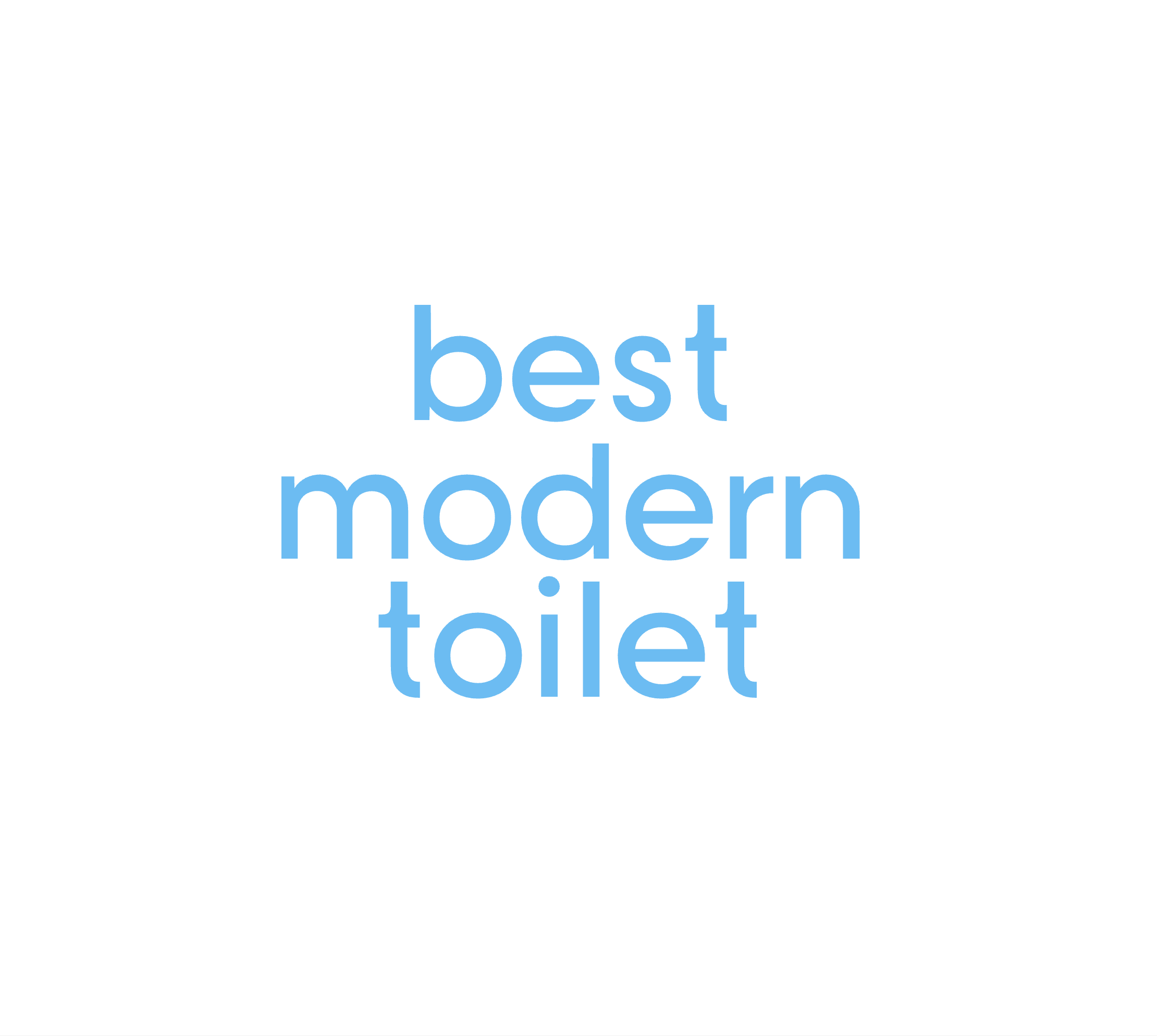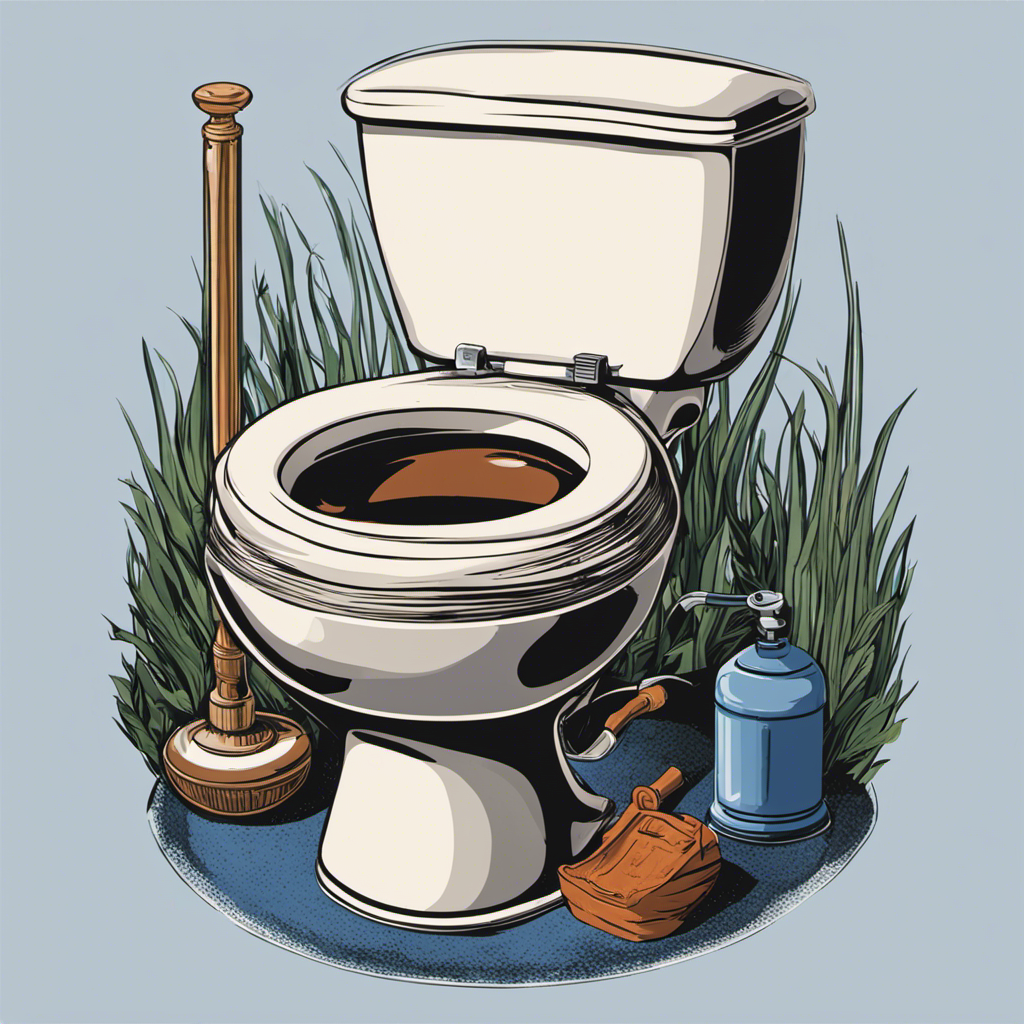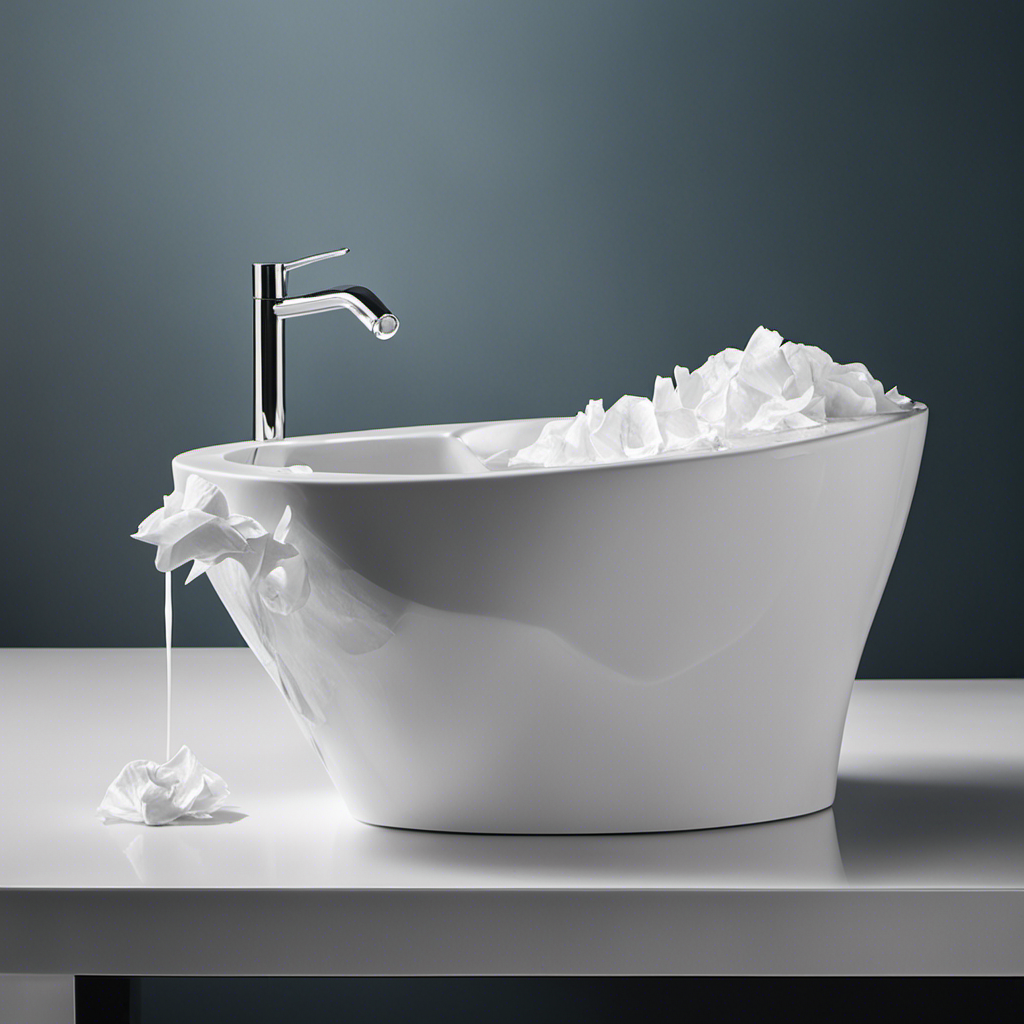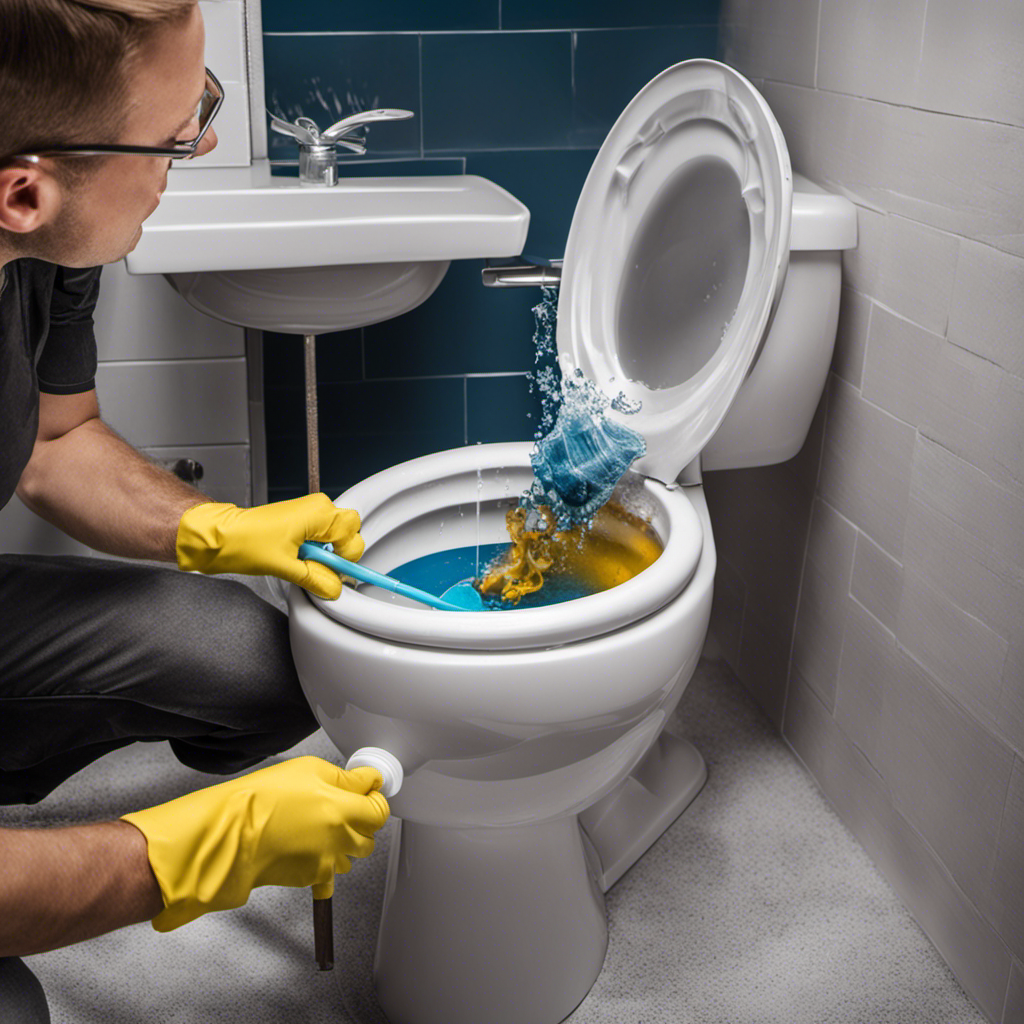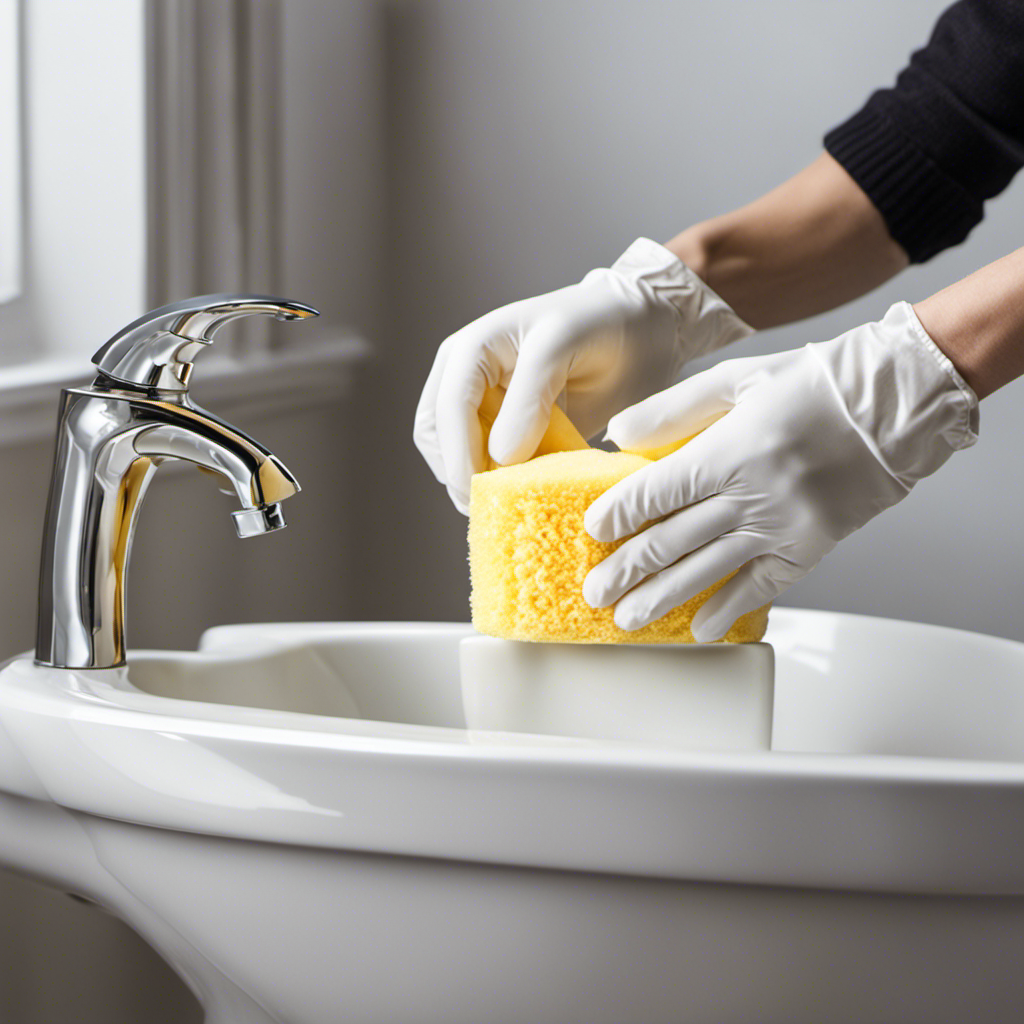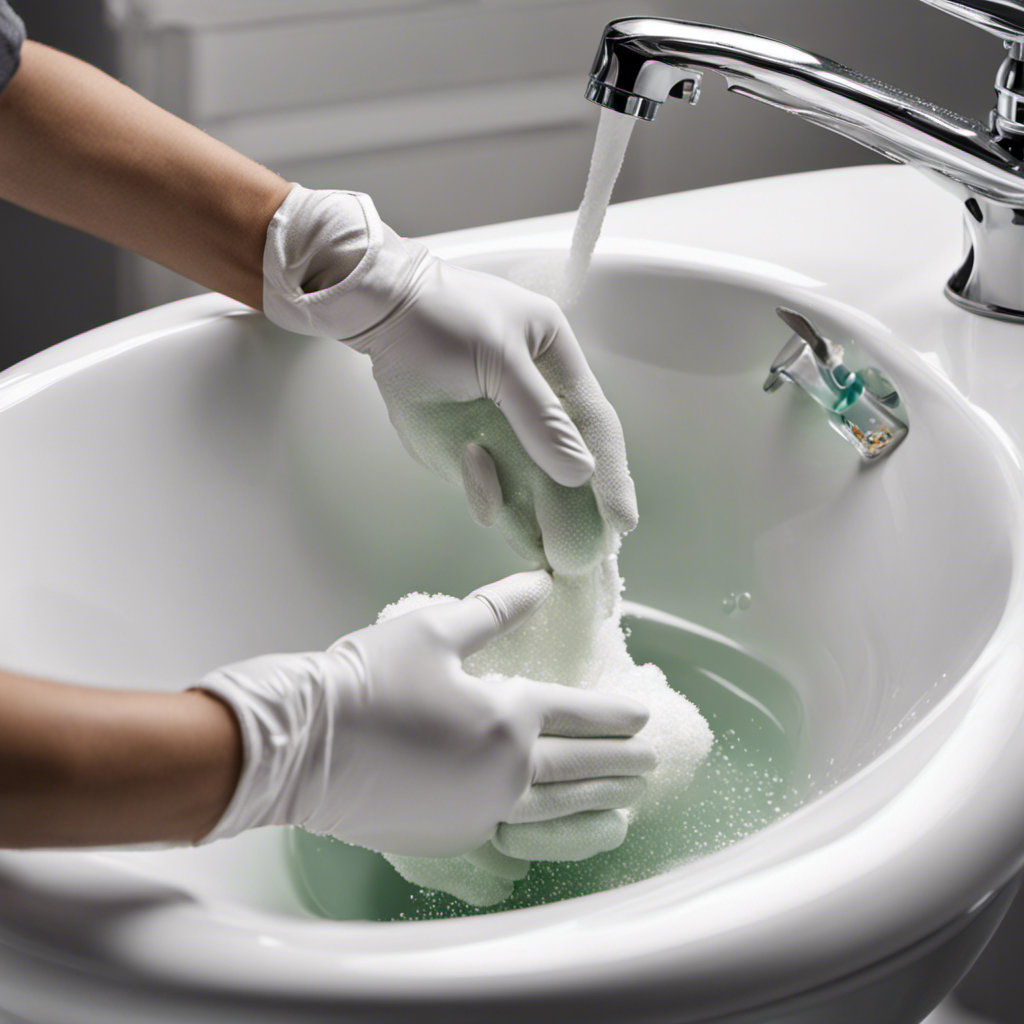FAQ - Advanced Bathroom Queries
Can You Use Wipes as Toilet Paper

We’ve all experienced it – that instant of alarm when it dawns on us that we’re out of toilet paper.
But before you reach for those wipes, let’s explore whether they can truly serve as a substitute.
In this article, we’ll delve into the differences between wipes and toilet paper, their impact on plumbing and the environment, and expert opinions on the matter.
So, let’s make an informed choice together and find out if wipes are a viable alternative to good old toilet paper.
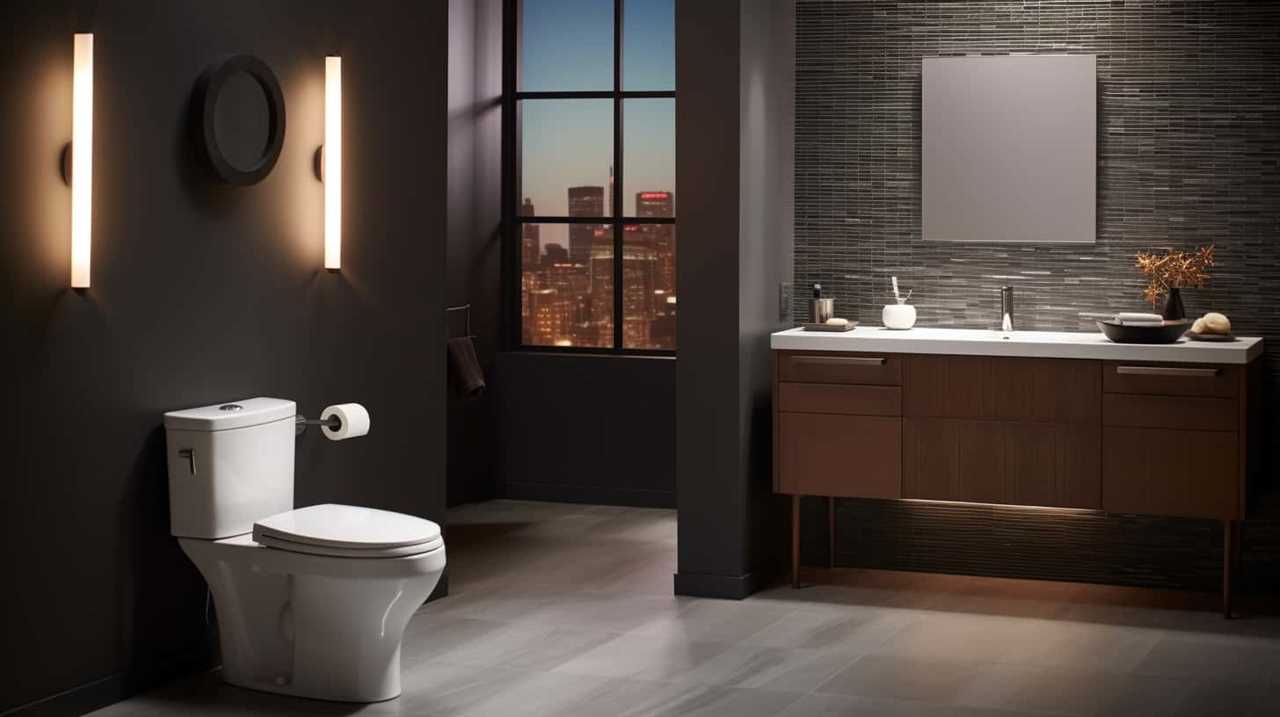
Key Takeaways
- Wipes are not designed to break down easily in water, unlike toilet paper.
- Flushing wipes can lead to plumbing and sewer issues, including clogs and blockages.
- Wipes can have a negative environmental impact, contributing to pollution in waterways and posing a threat to marine life and ecosystems.
- It is important to properly dispose of wipes in the trash to minimize their environmental impact and maintain the efficiency of plumbing and sewer systems.
The Difference Between Wipes and Toilet Paper
The main difference between wipes and toilet paper is their composition.
Wipes are typically made from synthetic fibers, such as polyester or polypropylene, which makes them more durable and resistant to tearing.
On the other hand, toilet paper is made from biodegradable materials like wood pulp or recycled paper fibers.
This difference in composition has significant implications for flushability issues and the impact on sewer systems.
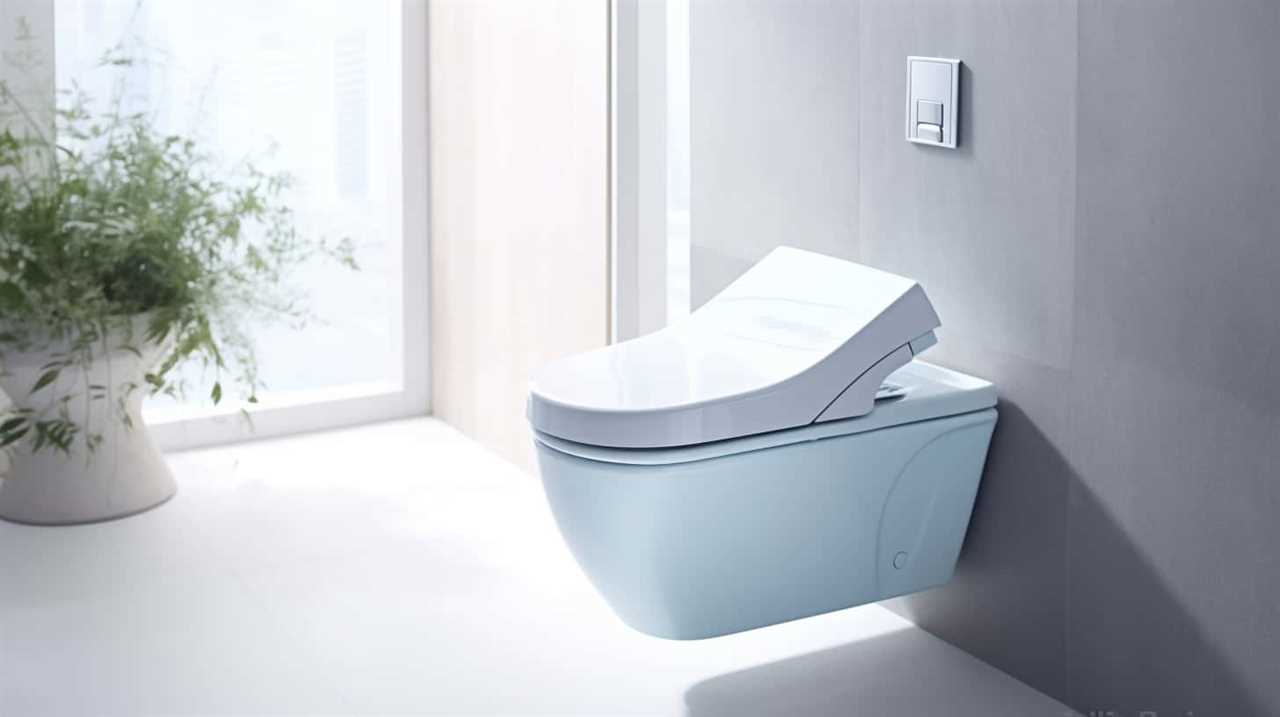
Wipes aren’t designed to break down easily in water, leading to clogs and blockages in pipes and sewage systems.
In contrast, toilet paper is specifically designed to disintegrate quickly when flushed, minimizing the risk of sewer system problems.
It’s important to understand these differences and dispose of wipes properly to prevent costly and environmentally damaging issues in our sewer infrastructure.
Composition and Materials of Wipes
When it comes to wipes and their suitability as toilet paper, understanding the composition and materials is crucial. Here are three key points about the composition and materials of wipes:
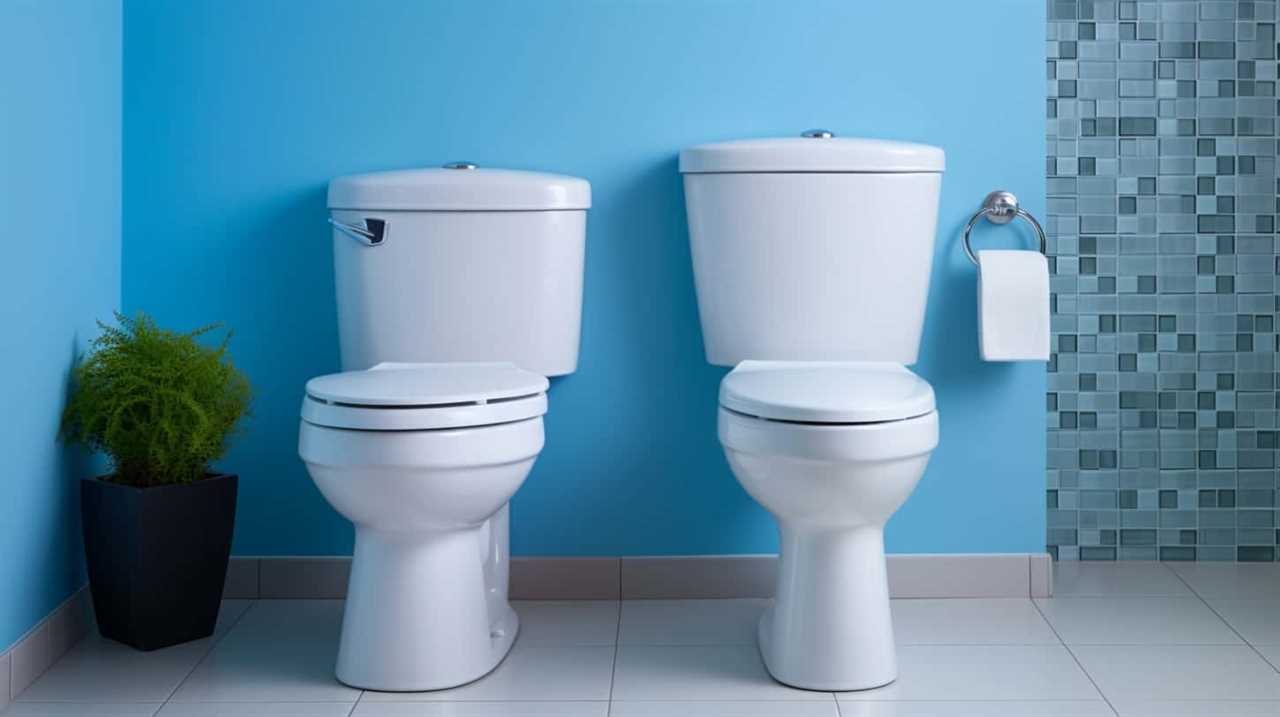
- Manufacturing process of wipes: Wipes are typically made using a combination of fibers, such as wood pulp or synthetic materials, like polyester or polypropylene. These fibers are processed and bonded together to create a soft and durable fabric.
- Biodegradability of wipes: The biodegradability of wipes varies depending on the materials used. Some wipes are made from natural fibers and are designed to break down easily in the environment. However, many wipes contain synthetic materials that take longer to degrade, making them less environmentally friendly.
- Flushability of wipes: Understanding the composition and materials of wipes is important, but it’s also essential to consider their flushability.
Flushability of Wipes
When considering the flushability of wipes, there are several important points to keep in mind.
Firstly, the environmental impact of wipes is a major concern, as many wipes aren’t biodegradable and can contribute to pollution in waterways.
Secondly, flushing wipes can lead to plumbing and sewer issues, as they don’t break down as easily as toilet paper.
Lastly, it’s worth exploring alternatives to flushable wipes, such as using a bidet or opting for toilet paper that’s specifically designed to be flushable.
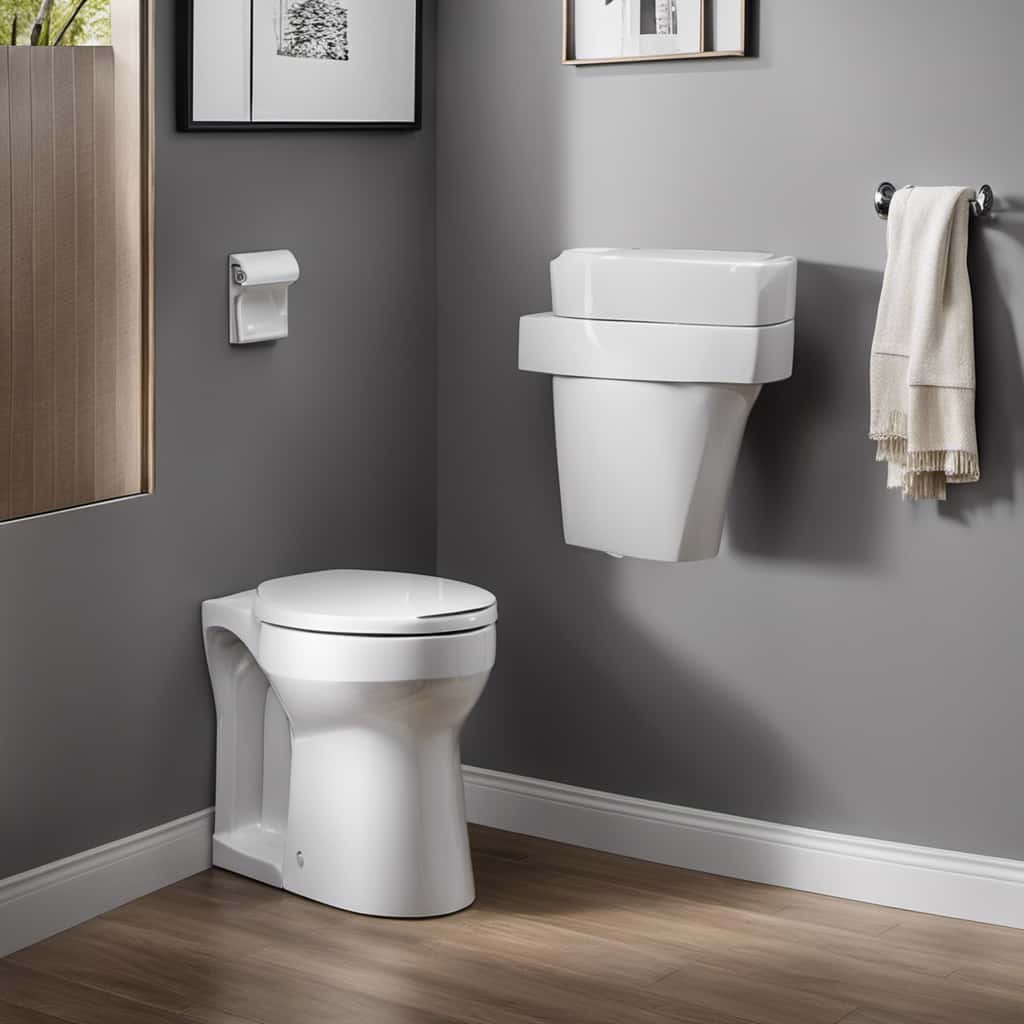
Environmental Impact of Wipes
Although wipes may seem convenient, it’s important to consider the environmental impact they’ve due to their flushability. Here are three reasons why wipes can negatively affect wastewater systems and overall environmental sustainability:
- Clogging: Unlike toilet paper, wipes don’t break down easily in water. This can lead to clogged pipes and sewer backups, causing costly damages and environmental pollution.
- Treatment challenges: Wipes that make it past the pipes can still pose problems at wastewater treatment plants. These plants are designed to treat human waste, not wipes. The presence of wipes can interfere with the treatment process and require additional resources and energy.
- Marine pollution: When wipes are flushed and end up in rivers and oceans, they contribute to marine pollution. Marine animals can mistake them for food, leading to ingestion and entanglement, which can have devastating consequences for aquatic ecosystems.
Considering the impact on wastewater systems and environmental sustainability, it’s crucial to dispose of wipes properly in the trash instead of flushing them down the toilet.
Plumbing and Sewer Issues
We should address the issue of plumbing and sewer problems that arise from the flushability of wipes.
When it comes to plumbing maintenance, using wipes as toilet paper can lead to serious issues. Unlike toilet paper, wipes aren’t designed to break down easily in water. As a result, they can cause clogs and blockages in the sewer system. These blockages can lead to expensive repairs and inconvenience for homeowners.
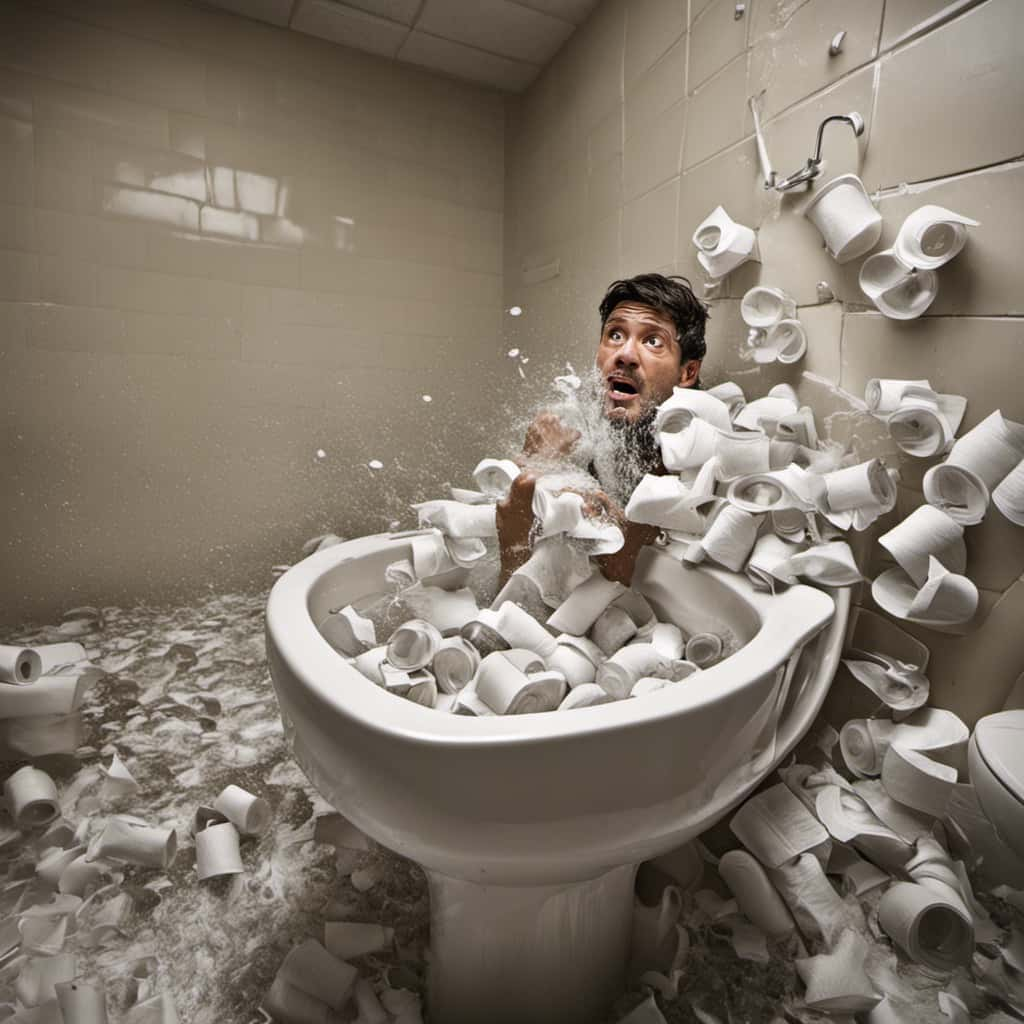
It’s important to understand that even wipes labeled as ‘flushable’ can still cause problems. To avoid sewer blockages, it’s best to stick to using toilet paper and dispose of wipes in the trash. This simple practice can help prevent unnecessary plumbing issues and ensure the smooth operation of the sewer system.
Alternatives to Flushable Wipes
To find alternatives to flushable wipes, we can consider using a bidet or wetting regular toilet paper. These options are recommended by experts and offer a more environmentally friendly and cost-effective solution.
Here are three alternatives to flushable wipes:
- Bidet: Bidets are becoming increasingly popular as an alternative to toilet paper. They use water to clean instead of wipes, providing a more thorough and hygienic cleansing experience. Bidets can be installed as attachments to existing toilets or as standalone fixtures, offering flexibility and availability at various price points.
- Wetting regular toilet paper: Another option is to wet regular toilet paper with water or a gentle cleansing solution. This can provide a similar cleansing effect as flushable wipes without the risk of clogging pipes. Wetting toilet paper is a simple and affordable alternative that’s readily available in most households.
- Flushable toilet paper alternatives: Some manufacturers produce toilet paper specifically designed to break down easily in water. These alternatives are more sewer and septic system-friendly compared to traditional flushable wipes. They provide a convenient option for those who prefer the convenience of disposable wipes but want to avoid plumbing issues.
Considering the availability, cost, and expert recommendations, bidets, wetting regular toilet paper, and flushable toilet paper alternatives are viable alternatives to flushable wipes.
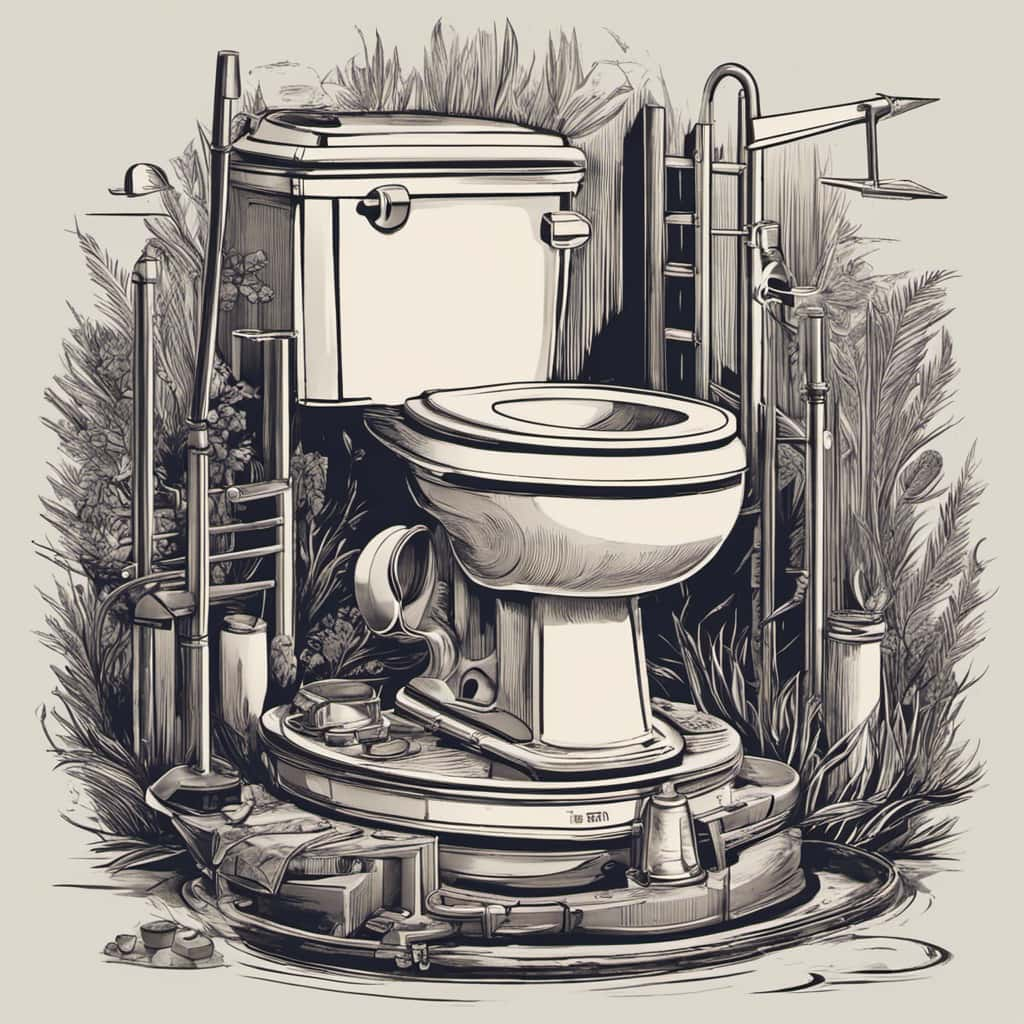
Impact on Plumbing and Sewer Systems
Using wipes as toilet paper can have a significant impact on the plumbing and sewer systems over time. While wipes may seem convenient and effective for personal hygiene, they can cause serious plumbing problems and sewer blockages. Unlike toilet paper, which dissolves easily in water, wipes are made of materials that do not break down as quickly. This can lead to clogged pipes and blockages in the sewer system, resulting in costly repairs and potential health hazards. To illustrate the potential consequences, consider the following table:
| Issue | Impact |
|---|---|
| Clogged pipes | Backed-up toilets and drains, unpleasant odors |
| Sewer blockages | Sewage backups, environmental contamination, health risks |
| Increased maintenance | Higher costs for plumbers, repairs, and sewer system cleaning |
| Potential lawsuits | Property damage, liability claims, legal expenses |
To avoid these problems, it is best to stick to using toilet paper and dispose of wipes in the trash bin instead of flushing them down the toilet.
Environmental Impact of Wipes
The impact of wipes on the environment is another important consideration to take into account. Here are three key points regarding the environmental impact of wipes:
- Impact on wastewater systems: Wipes aren’t easily breakable like toilet paper, leading to clogged pipes and blockages in sewer systems. This can result in costly repairs and maintenance for municipalities and individuals.
- Environmental sustainability: Wipes are often made from synthetic materials that take a long time to decompose, contributing to plastic waste in landfills and oceans. This poses a significant threat to marine life and ecosystems.
- Misleading labeling: Some wipes claim to be ‘flushable’ or ‘biodegradable,’ but they may not break down as efficiently as advertised. This can further exacerbate the negative impact on wastewater systems and the environment.
Considering these factors, it’s important to choose alternatives to wipes that are more environmentally friendly and compatible with wastewater systems.
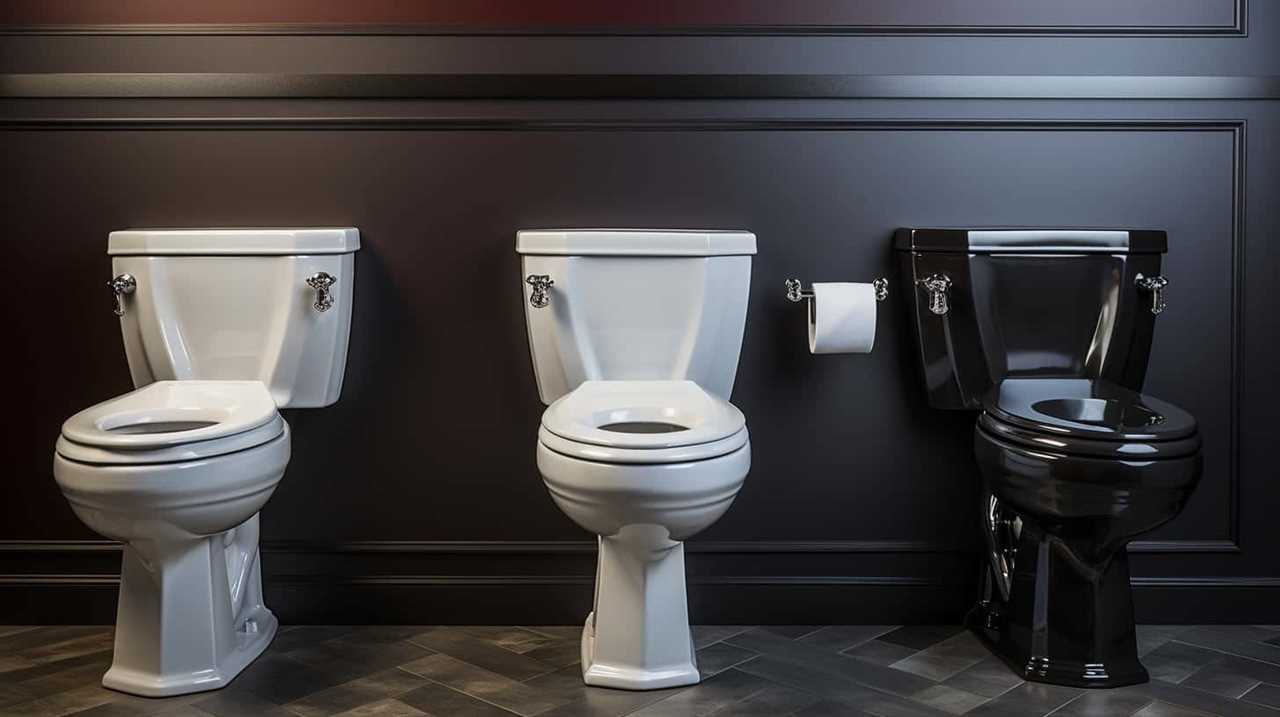
Effectiveness in Cleaning
When cleaning, wipes provide a convenient and efficient method for effectively removing dirt and bacteria. Wipes are designed to be highly effective in disinfection, making them ideal for cleaning surfaces in various settings such as homes, offices, and hospitals. The ingredients in wipes are specifically formulated to kill germs and bacteria, ensuring a thorough clean. This effectiveness in disinfection is particularly important in environments where hygiene is crucial.
Additionally, wipes offer convenience in travel. They’re compact and easy to carry, making them perfect for on-the-go cleaning needs. Whether it’s wiping down a hotel room surface or disinfecting hands during travel, wipes provide a portable and efficient solution.
However, it’s important to note that some wipes may contain harsh chemicals that can cause skin sensitivity and irritation. This will be discussed further in the next section.
Skin Sensitivity and Irritation
We experienced skin sensitivity and irritation when using certain wipes. It’s important to note that not all wipes are created equal and some may contain ingredients that can irritate the skin.
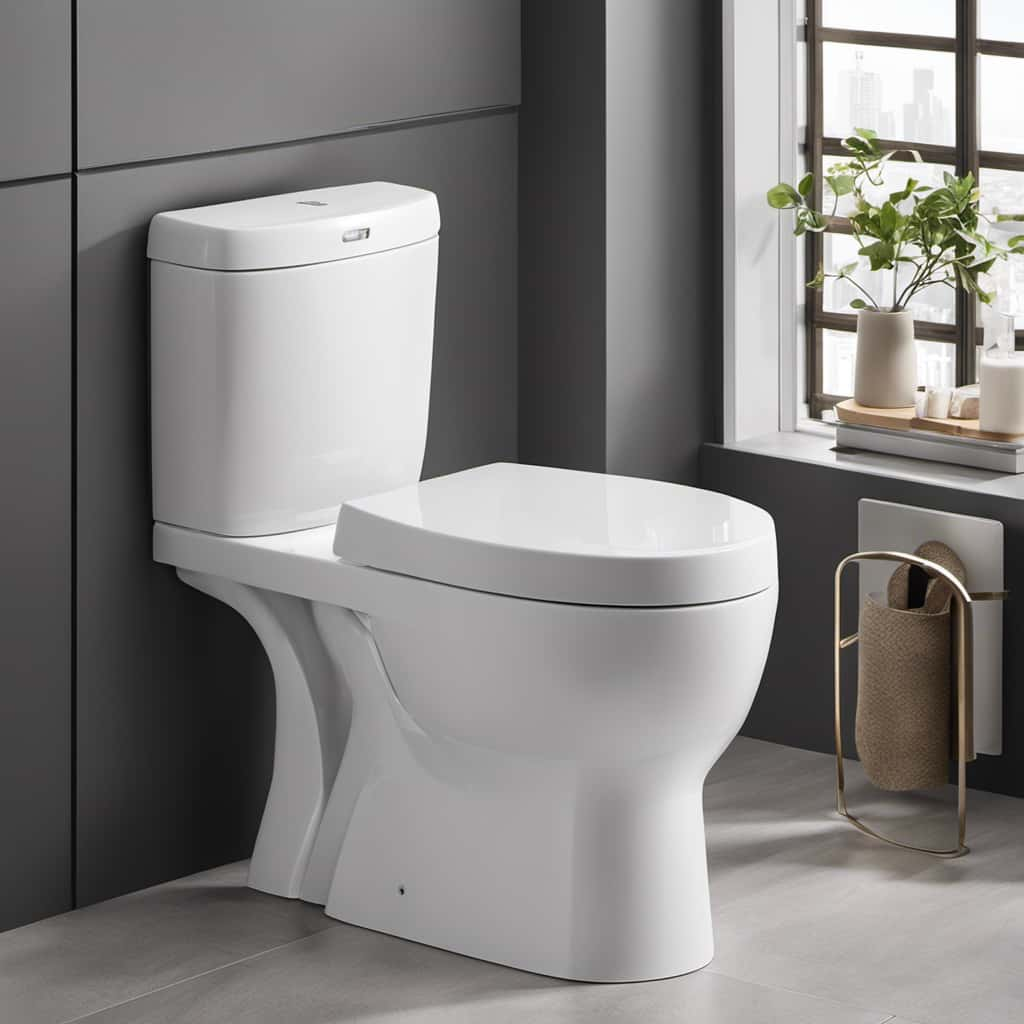
Here are three factors that can contribute to skin sensitivity and irritation when using wipes:
- Harsh chemicals: Certain wipes may contain harsh chemicals such as alcohol, fragrances, or preservatives that can strip the skin of its natural oils and cause irritation.
- Rough texture: Some wipes have a rough texture that can be abrasive to the skin, leading to redness and irritation, especially in individuals with sensitive skin.
- Improper usage: Using wipes too aggressively or vigorously can also cause skin sensitivity and irritation. It’s important to use gentle, light strokes when using wipes to minimize any potential damage to the skin.
To avoid skin sensitivity and irritation, it’s recommended to choose wipes specifically designed for sensitive skin and to always perform a patch test before using them extensively.
Availability and Cost Comparison
Let’s explore the availability and cost comparison of using wipes as toilet paper. When considering using wipes as an alternative to toilet paper, it is important to take into account their availability and cost. To help you make an informed decision, let’s compare the availability and cost of wipes versus traditional toilet paper.
Here is a comparison of the availability and cost of wipes and toilet paper:
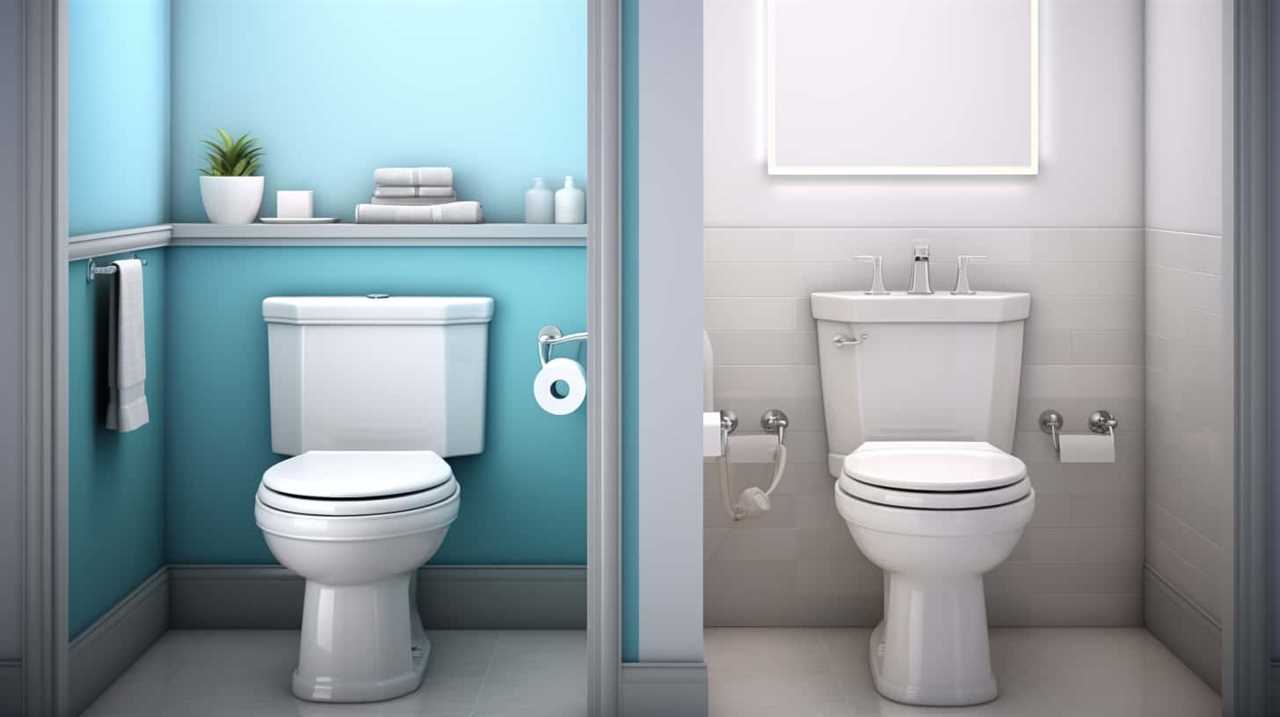
| Availability | Cost | |
|---|---|---|
| Wipes | Widely available in stores and online | Generally more expensive than toilet paper |
| Toilet Paper | Widely available in stores and online | Generally more affordable than wipes |
As shown in the table, wipes are generally more expensive than toilet paper. However, both wipes and toilet paper are widely available, making it easy to find either option.
Considering the availability and cost analysis, it is now important to delve into the hygiene considerations when using wipes as toilet paper.
Hygiene Considerations
Continuing our analysis on the topic of using wipes as toilet paper, it’s crucial to address the hygiene considerations associated with this alternative. When it comes to using wipes, there are a few important factors to keep in mind:
- Skin allergies: Wipes often contain fragrances and chemicals that can be irritating to sensitive skin. This can lead to discomfort, redness, and even allergic reactions. It’s important to choose wipes that are specifically formulated for sensitive skin or consider using alternatives such as hypoallergenic toilet paper.
- Disposal methods: Unlike toilet paper, wipes aren’t designed to break down easily in water. Flushing them down the toilet can cause blockages in the plumbing system, leading to costly repairs. It’s recommended to dispose of wipes in a designated trash bin instead.
Considering these hygiene considerations, it’s important to weigh the potential risks and benefits before using wipes as a toilet paper alternative.

Wipes as a Temporary Solution
When it comes to using wipes as a temporary solution for toilet paper, there are a few important points to consider.
Firstly, hygiene concerns should be taken into account, as wipes may not provide the same level of cleanliness as toilet paper.
Additionally, the environmental impact of wipes is a significant factor, as they’re often not biodegradable and can contribute to clogs in sewage systems.
It’s essential to weigh these considerations before resorting to wipes as a temporary solution.

Hygiene Concerns With Wipes
Using wipes as a temporary solution for toilet paper raises hygiene concerns. While wipes may provide a quick fix in situations where toilet paper is unavailable, it’s important to consider the potential risks associated with their use.
Here are three key concerns to keep in mind:
- Skin Irritation: Wipes are often infused with chemicals and fragrances that can irritate sensitive skin. Prolonged use of wipes as a substitute for toilet paper may lead to discomfort, itching, and even allergic reactions.
- Proper Disposal: Unlike toilet paper, wipes aren’t designed to break down easily in water. Flushing wipes can clog pipes and cause damage to plumbing systems. It’s crucial to dispose of wipes properly in a trash can to prevent blockages and maintain proper hygiene.
- Bacterial Growth: Moisture and warmth create the perfect environment for bacteria to thrive. If wipes aren’t properly stored or used, they can become breeding grounds for harmful bacteria, posing a risk to personal hygiene.
Environmental Impact of Wipes
As we delve into the environmental impact of using wipes as a temporary solution for toilet paper, it’s crucial to address the potential consequences that arise from their continued use. Wipes, including flushable ones, can have significant environmental consequences.
Firstly, wipes aren’t easily biodegradable and can clog sewage systems, leading to costly repairs and environmental damage. Additionally, the production of wipes requires large amounts of water, energy, and chemicals, contributing to pollution and resource depletion. Moreover, the disposal of wipes in landfills further exacerbates the problem.
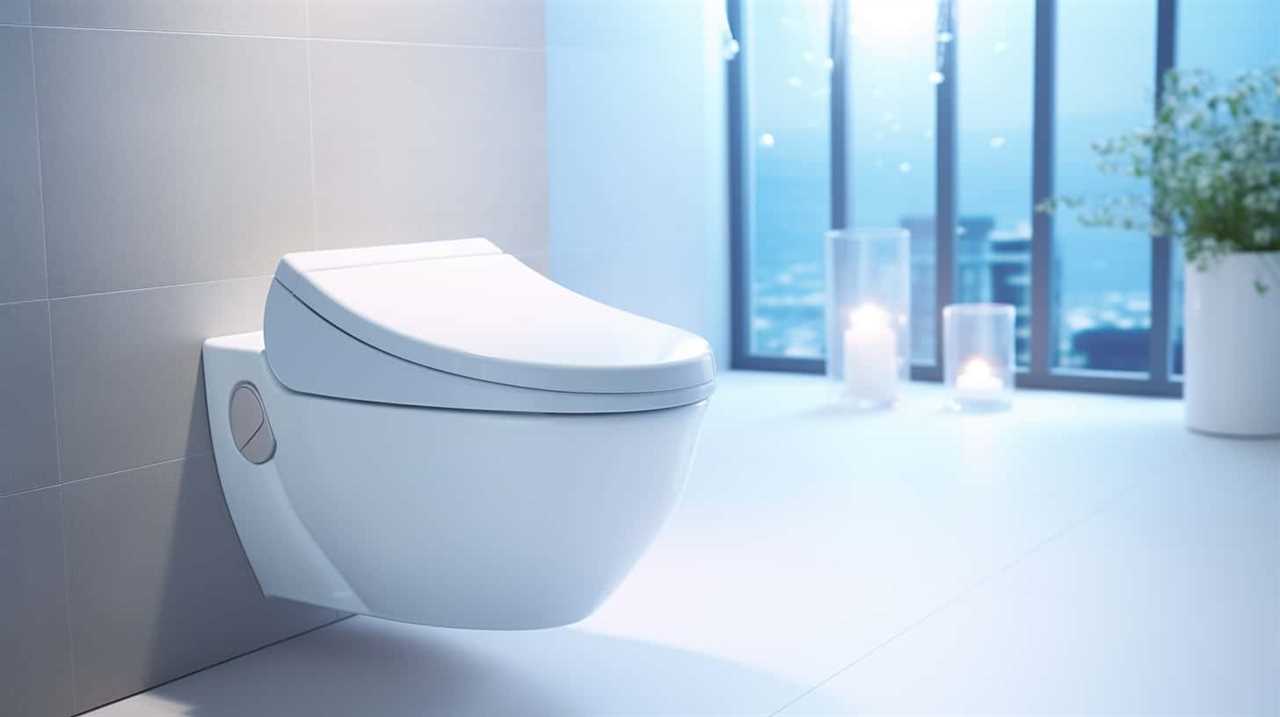
Sustainability considerations are vital when evaluating the use of wipes as a temporary solution. It’s important to explore alternatives to wipes and toilet paper that are more environmentally friendly and sustainable.
Transitioning into the next section, let’s explore some alternatives that can help mitigate the environmental impact.
Alternatives to Wipes and Toilet Paper
Our household’s preferred alternative to wipes and toilet paper is using a bidet attachment. This option provides a more hygienic and environmentally friendly solution. Here are three reasons why we find it to be an excellent alternative:
- Improved cleanliness: Bidets use water to cleanse, ensuring a thorough and refreshing clean feeling. This eliminates the need for excessive wiping and reduces the risk of skin irritation.
- Cost-effective: While bidet attachments may require an initial investment, they save money in the long run. With no need for purchasing wipes or toilet paper, the cost of using a bidet attachment decreases over time.
- Availability: Bidet attachments are becoming increasingly popular and readily available. They can be easily installed on most existing toilets, making them a convenient option for any household.
Transitioning from bidet attachments to proper disposal of wipes, it’s essential to consider the impact of incorrectly disposing of wipes on the environment.

Proper Disposal of Wipes
After transitioning from bidet attachments, it is crucial to consider the proper disposal of wipes and its impact on the environment. Improper disposal of wipes can lead to clogged sewage systems and harm aquatic life. To help you understand the importance of proper disposal, we have created the following table:
| Proper Disposal Methods | Impact on Sewage Systems | Impact on Environment |
|---|---|---|
| Dispose in trash bins | Prevents clogs | Reduces pollution |
| Do not flush down toilets | Avoids blockages | Protects ecosystems |
| Use designated wipe disposal bins | Maintains sewage system efficiency | Preserves biodiversity |
Wipes for Specific Uses (E.G., Baby Wipes, Makeup Wipes)
Using wipes for specific purposes, such as baby wipes and makeup wipes, can provide convenient and effective solutions for personal hygiene and skincare needs. Here are three reasons why these wipes are beneficial:
- Gentle on the skin: Baby wipes are designed with a soft and gentle texture, making them ideal for sensitive skin. They contain mild ingredients that cleanse without causing irritation or dryness.
- Convenient and portable: Baby wipes and makeup wipes come in compact packaging, making them easy to carry in your bag or purse. Whether you’re on the go or traveling, these wipes allow for quick and hassle-free cleanups.
- Effective makeup removal: Facial wipes are specifically formulated to remove makeup, dirt, and impurities from the skin. They’re infused with ingredients that dissolve makeup, leaving your face clean and refreshed.
When it comes to personal hygiene and skincare, baby wipes and facial wipes offer practical solutions that cater to specific needs.
Expert Opinions and Recommendations
When it comes to the use of wipes as toilet paper, it’s important to consider the expert opinions and recommendations.
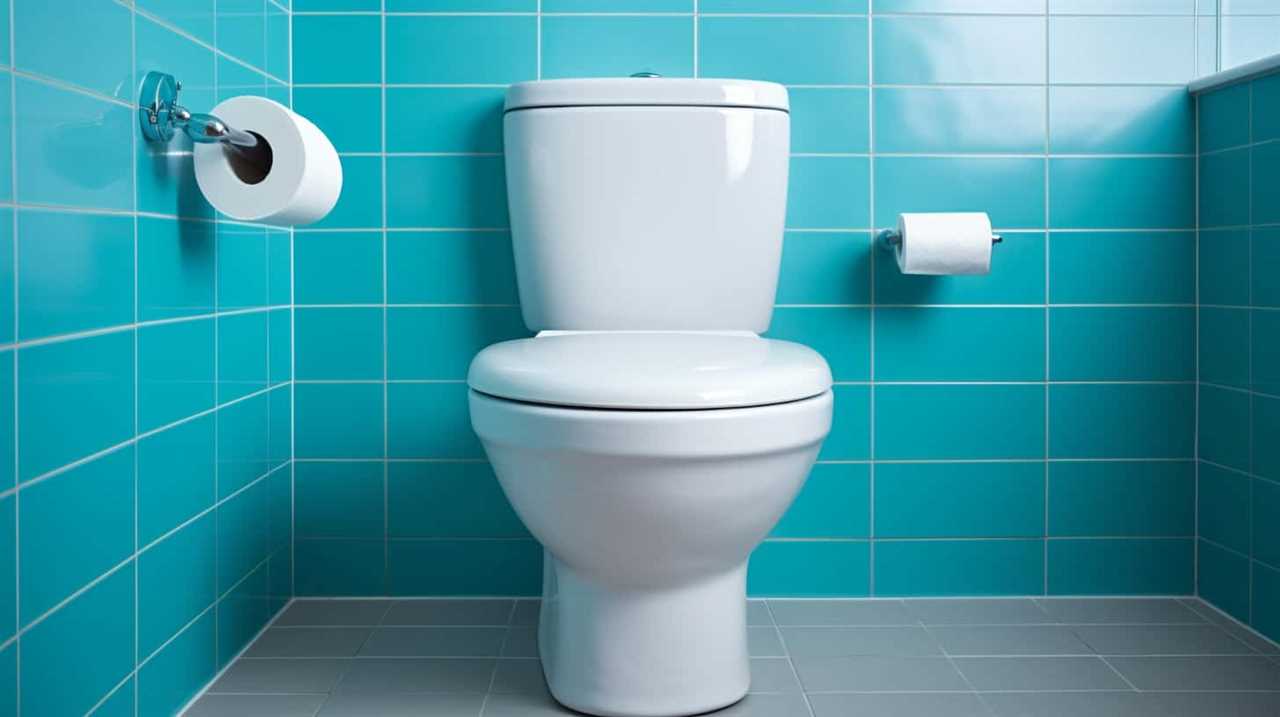
One key point to discuss is whether flushable wipes are truly flushable or if they pose a risk to plumbing systems.
Additionally, it’s crucial to address the potential health risks associated with using wipes, such as irritation or infection.
Flushable Wipes or Not
One important consideration regarding wipes as a toilet paper alternative is determining whether flushable wipes are truly flushable, as experts have differing opinions and recommendations. The flushable wipes controversy revolves around their impact on sewage systems.
Here are three key points to consider:
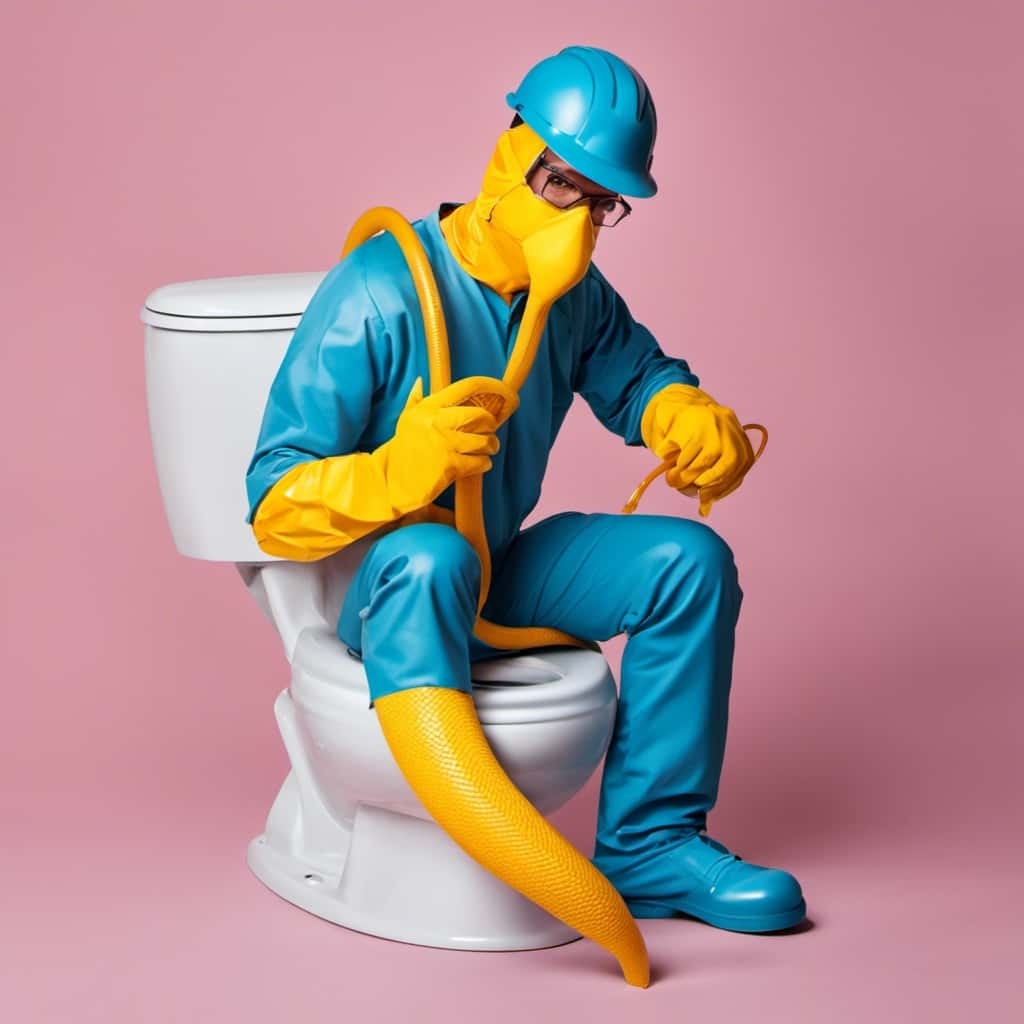
- Labeling and Standards: The term ‘flushable’ isn’t regulated, leading to confusion. Some experts argue that flushable wipes don’t break down in the same way as toilet paper, causing clogs and blockages in pipes. Others suggest that certain flushable wipes meet industry standards and can be safely flushed.
- Sewage System Strain: Even if flushable wipes break down, they can still cause issues for sewage systems. Wipes can accumulate, combine with fats, oils, and grease, and form large clogs in pipes and pumps. This can result in costly repairs and environmental damage.
- Alternative Disposal Methods: To avoid potential problems, experts recommend disposing of wipes in the trash. This ensures they won’t harm sewage systems and reduces the risk of blockages and backups.
Considering the ongoing debate and potential risks, it’s crucial to make an informed decision about using flushable wipes as a toilet paper alternative.
Health Risks of Wipes?
As we delve into the potential health risks of using wipes as a toilet paper alternative, it is important to consider expert opinions and recommendations. Experts have raised concerns about the use of wipes for personal hygiene due to the possible health risks they pose. One major concern is the potential for skin irritation. Wipes often contain chemicals and fragrances that can irritate sensitive skin, leading to redness, itching, and discomfort. Additionally, using wipes that are not specifically designed for toilet use can increase the risk of bacterial contamination, as they may not effectively remove fecal matter. To provide a clearer understanding, here is a table summarizing the expert opinions and recommendations regarding the health risks of using wipes as toilet paper:
| Expert Opinions | Recommendations |
|---|---|
| Wipes can cause skin irritation | Use wipes sparingly and opt for gentle, unscented options |
| Wipes may not effectively remove fecal matter | Use wipes in conjunction with toilet paper for thorough cleaning |
| Wipes may increase the risk of bacterial contamination | Properly dispose of used wipes in a waste bin, rather than flushing |
| Wipes can disrupt the natural balance of the skin | Maintain good personal hygiene practices and moisturize the skin regularly |
Considering these expert opinions and recommendations, it is crucial to make an informed choice when deciding whether to use wipes as a toilet paper alternative.
Conclusion: Making an Informed Choice
After careful consideration, we’ve come to an informed conclusion about the use of wipes as toilet paper. Here are three key points to help you make an informed choice:
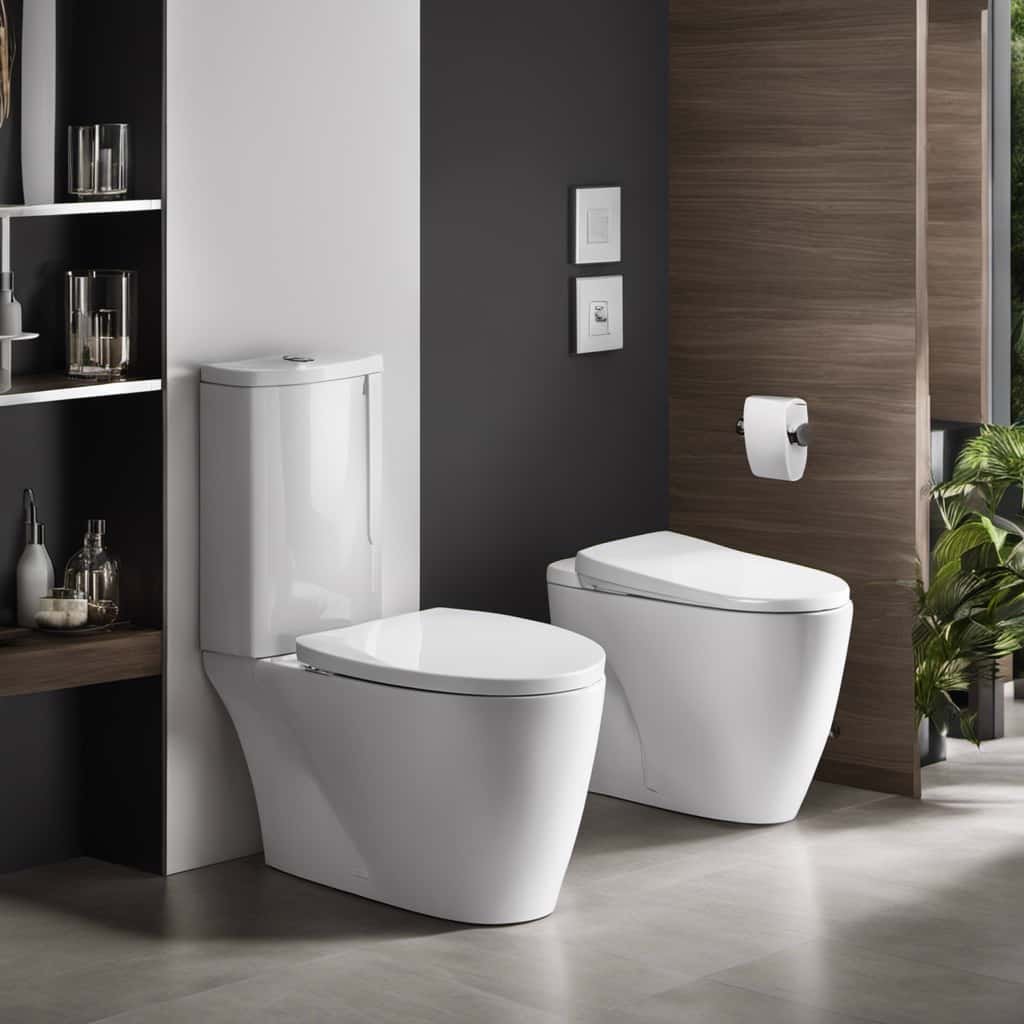
- Availability in stores:
While toilet paper is widely available in stores, wipes may not be as accessible. It’s important to consider whether you can easily purchase wipes whenever needed. - Cost comparison:
Toilet paper is generally more cost-effective than wipes. Wipes tend to be more expensive and may not last as long as a roll of toilet paper. This is something to consider if you’re on a budget. - Environmental impact:
Wipes aren’t biodegradable like toilet paper, which can cause issues when flushed down the toilet. Toilet paper is designed to break down easily in water, making it a more environmentally friendly option.
Ultimately, the choice between wipes and toilet paper depends on your personal preferences and priorities. Consider these factors before making a decision that aligns with your needs.
Frequently Asked Questions
Can Wipes Be Used as a Long-Term Replacement for Toilet Paper?
Using wipes for personal hygiene is a viable alternative to toilet paper in the short term. However, as a long-term replacement, it may not be ideal due to potential issues with flushing, sustainability, and skin irritation.
Are Wipes Safe to Flush Down the Toilet?
Flushable wipes are not always safe to flush down the toilet. According to a study, only about 30% of wipes marketed as "flushable" actually break down properly. To protect the environment, explore eco-friendly alternatives and follow proper disposal methods.
Can Wipes Cause Clogs or Blockages in Plumbing Systems?
Clogs in plumbing systems and sewage system issues can result from using wipes as toilet paper. It is important to avoid flushing wipes down the toilet to prevent potential blockages and costly repairs.

What Are the Potential Environmental Impacts of Using Wipes Instead of Toilet Paper?
Using wipes instead of toilet paper can have significant environmental impacts. Biodegradability concerns arise as wipes take longer to break down, impacting sewage treatment systems and contributing to clogs and blockages.
Are There Any Specific Hygiene Considerations When Using Wipes Instead of Toilet Paper?
Hygiene considerations should be taken into account when using wipes instead of toilet paper. Using wipes may increase the risk of skin irritation due to the chemicals and fragrances they contain.
Conclusion
In conclusion, when it comes to using wipes as toilet paper, it’s best to stick to the real deal.
While wipes may seem convenient, they can cause major plumbing and environmental issues.
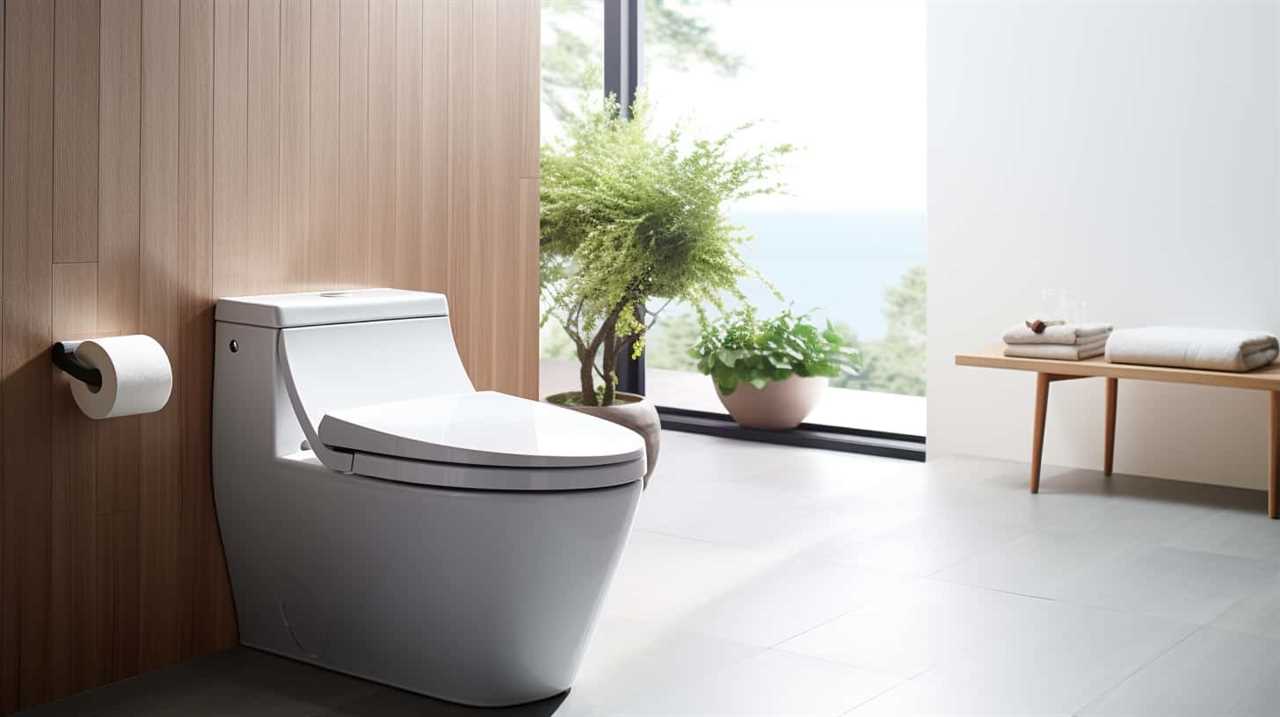
Symbolically, choosing toilet paper over wipes represents making a responsible and sustainable choice for our homes and our planet.
So let’s leave the wipes for their intended purposes and keep our toilets and sewers flowing smoothly.
With an impeccable eye for detail and a passion for bathroom-related, Ava leads our editorial team gracefully and precisely.
Under her guidance, Best Modern Toilet has flourished as the go-to resource for modern bathroom enthusiasts. In her free time, you might find Ava exploring antique shops and looking for vintage bathroom fixtures to add to her collection.
FAQ - Advanced Bathroom Queries
Where Can You Not Flush Toilet Paper

We’ve all experienced it – facing a toilet, pondering whether we should flush that bundle of toilet paper or not.
Well, here’s a surprising fact: in some places, you can’t flush it at all! From public restrooms to older plumbing systems, there are several situations where tossing that tissue down the drain is a big no-no.
In this article, we’ll explore where you can and can’t flush toilet paper, so you never find yourself in a messy situation again.
Key Takeaways
- Flushing toilet paper in public restrooms can have severe environmental impacts, clog pipes, and strain wastewater treatment facilities.
- Older plumbing systems may not be able to handle flushing toilet paper, leading to clogging and backups in the pipes.
- Many countries with inadequate sewage infrastructure cannot handle flushing toilet paper, leading to clogged pipes, sewage backups, and contaminated water sources.
- Flushing non-biodegradable items can cause blockages in septic systems and disrupt the natural balance of the tank, so it is important to use waste bins and properly dispose of hazardous materials.
Public Restrooms
In public restrooms, it’s important to remember that toilet paper shouldn’t be flushed in certain situations. Proper hygiene practices in public restrooms require us to dispose of toilet paper appropriately. Flushing toilet paper may seem convenient, but it can have severe environmental impacts.

When flushed, toilet paper can clog pipes and sewage systems, causing costly repairs and potential health hazards. Additionally, flushing toilet paper contributes to water pollution and strain on wastewater treatment facilities. By not flushing toilet paper in public restrooms, we can help conserve water, reduce maintenance costs, and protect the environment.
Instead, it’s recommended to use the provided waste bins for proper disposal. Let’s all be mindful of our actions and practice responsible hygiene practices in public restrooms for the benefit of ourselves and the environment.
Older Plumbing Systems
Our older plumbing systems may not be able to handle the flushing of toilet paper. This is due to their historical significance and the environmental impact it can have.
Many older buildings still have outdated plumbing systems that weren’t designed to handle the modern use of toilet paper. These systems were built at a time when people used alternative methods such as bidets or reusable cloths.

Flushing toilet paper in these older systems can lead to clogging and backups in the pipes, causing costly repairs and potential damage to the environment. It’s important to be aware of the limitations of these older plumbing systems and to dispose of toilet paper in the appropriate waste receptacles to prevent any issues.
Countries With Inadequate Sewage Infrastructure
Many countries around the world have inadequate sewage infrastructure that cannot handle the flushing of toilet paper. This poses significant challenges for hygiene practices and has a severe environmental impact. In countries where the sewage infrastructure is inadequate, flushing toilet paper can lead to clogged pipes, sewage backups, and contaminated water sources.
To illustrate the severity of the issue, let’s take a look at the table below, which highlights a few countries facing this problem:
| Country | Hygiene Practices Affected | Environmental Impact |
|---|---|---|
| Haiti | Limited access to clean water and sanitation facilities | Contamination of water sources and increased risk of diseases |
| India | Lack of proper sanitation facilities in rural areas | Pollution of rivers and groundwater |
| Cambodia | Insufficient sewage treatment plants | Water pollution and degradation of ecosystems |
It’s clear that the inadequate sewage infrastructure in these countries not only poses challenges to hygiene practices but also has a detrimental impact on the environment. Efforts should be made to improve and upgrade the sewage systems to ensure proper waste management and protect public health.
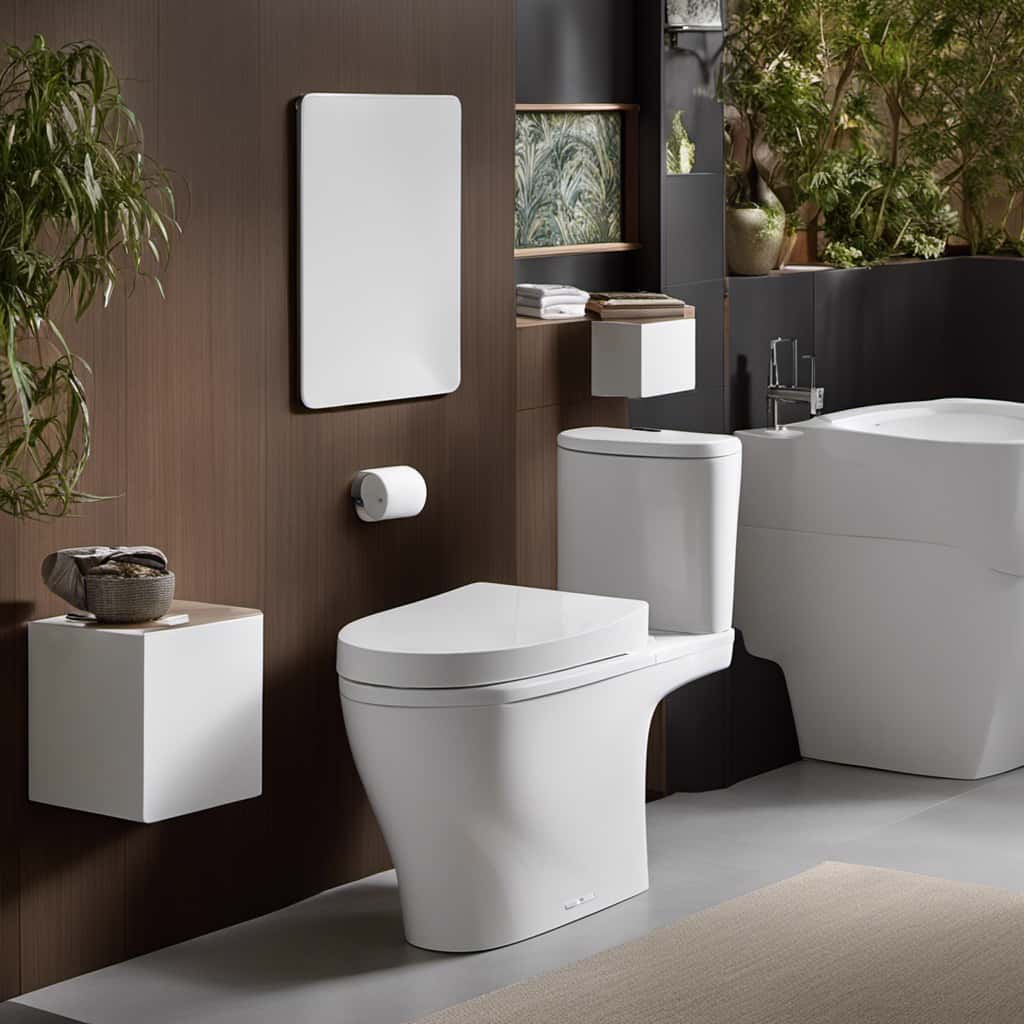
Portable Toilets
Moving forward from the discussion on countries with inadequate sewage infrastructure, let’s now explore the topic of portable toilets and their role in addressing the challenges related to proper waste management and hygiene practices.
Portable toilets play a crucial role in providing sanitation solutions in various situations. Here are four key points to consider:
- Temporary Events: Portable toilet rental is essential for outdoor events like concerts, festivals, and sports matches. They ensure that attendees have access to clean and convenient restroom facilities.
- Construction Sites: Portable toilets are commonly used on construction sites where permanent facilities are unavailable. They help maintain proper hygiene practices and ensure the well-being of workers.
- Disaster Relief: During natural disasters or emergencies, portable toilets are vital in providing immediate sanitation solutions in affected areas, preventing the spread of diseases.
- Outdoor Activities: Whether it’s camping, hiking, or boating, portable toilets are essential for maintaining cleanliness and hygiene in remote outdoor locations.
Septic Tanks
Let’s now delve into the topic of septic tanks and their role in addressing waste management and hygiene practices, particularly in relation to portable toilets.
Septic tanks play a crucial role in waste disposal and treatment, providing an efficient and eco-friendly solution for waste management. When it comes to portable toilets, septic tanks are often used to collect and store waste until it can be properly disposed of or treated.
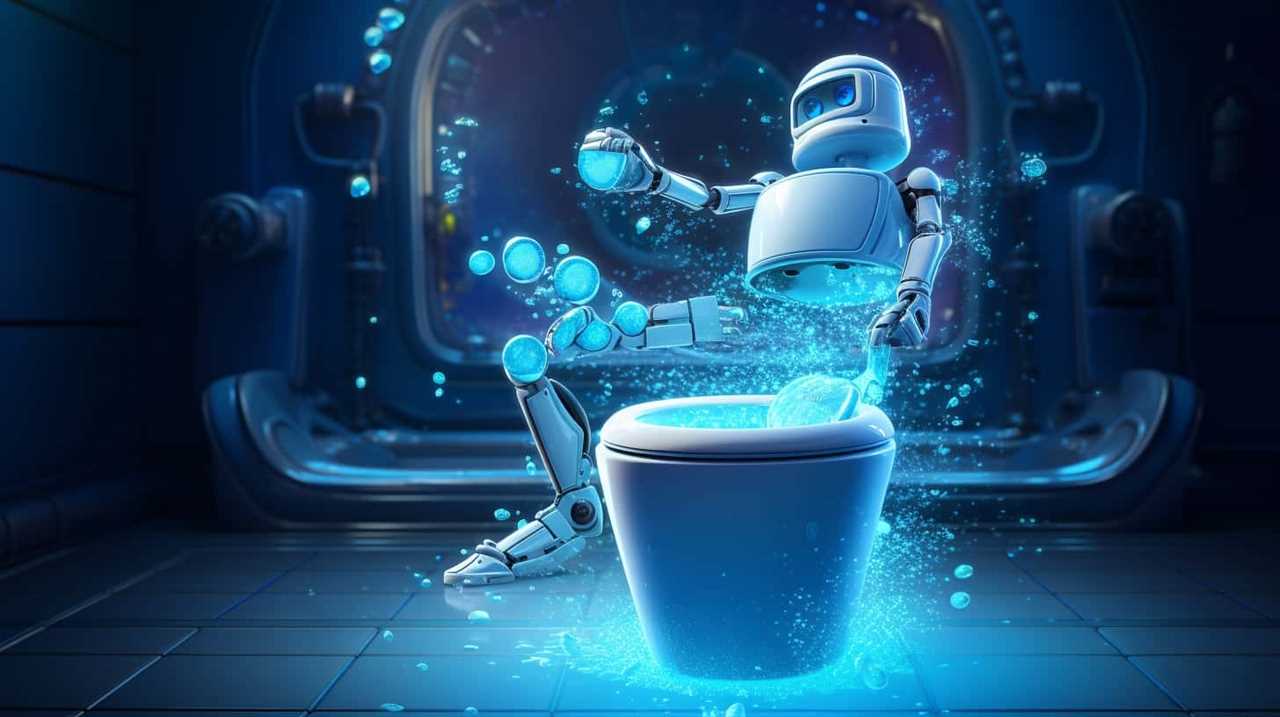
One of the key considerations with septic tanks is their environmental impact. Properly maintained septic tanks can minimize the release of harmful substances into the environment, protecting both human health and ecosystems.
Maintenance requirements for septic tanks include regular pumping, inspection, and proper use of additives to promote the breakdown of organic waste. By adhering to these maintenance practices, septic tanks can effectively manage waste and maintain a healthy environment.
Frequently Asked Questions
How Often Should Public Restrooms Be Cleaned to Ensure Proper Hygiene and Prevent the Spread of Diseases?
We clean public restrooms frequently to maintain proper hygiene and prevent the spread of diseases. Our disease prevention measures include regular cleaning, disinfecting surfaces, and ensuring adequate supply of soap and hand sanitizers.
What Are Some Alternative Options for Disposing of Toilet Paper in Areas With Older Plumbing Systems?
In areas with older plumbing systems, waste disposal can be a challenge. However, there are environmentally friendly alternatives to flushing toilet paper. Let’s explore some options for proper disposal that won’t harm the plumbing.
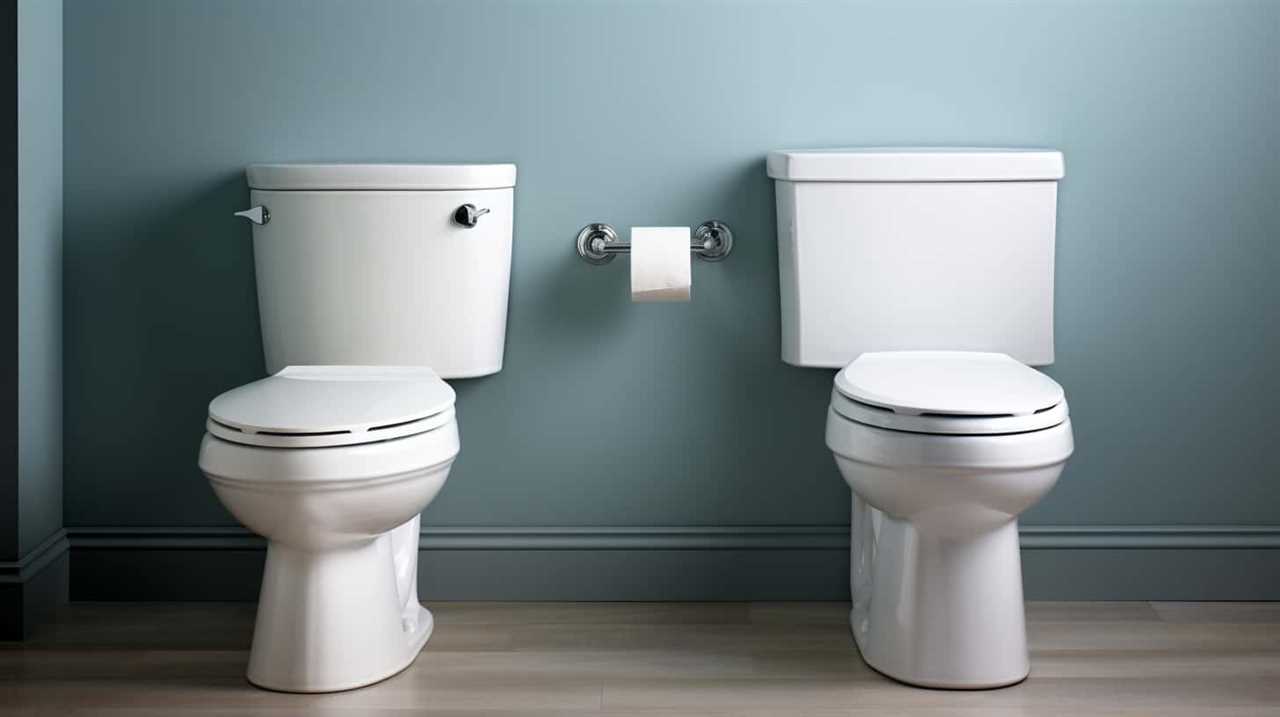
Can You Provide a List of Countries With the Most Advanced Sewage Infrastructure?
A list of countries with the most advanced sewage infrastructure includes Japan, Germany, and Singapore. These countries have invested in modern technology to efficiently manage wastewater. Bidets are another alternative to toilet paper, with benefits like improved hygiene and reduced environmental waste.
How Are Portable Toilets Emptied and Maintained to Ensure Proper Sanitation?
When it comes to portable toilet maintenance, ensuring proper disposal of waste is crucial. We take the responsibility seriously, employing strict protocols to empty and maintain portable toilets, guaranteeing optimal sanitation for everyone.
What Are the Common Problems That Can Occur With Septic Tanks and How Can They Be Prevented or Resolved?
Common septic tank problems include blockages, leaks, and overflows. Regular septic tank maintenance, such as pumping and inspecting, can help prevent these issues. It’s important to follow proper waste disposal guidelines to avoid further complications.
Conclusion
In conclusion, while it may seem strange to some, there are various places where flushing toilet paper isn’t advisable. Public restrooms, older plumbing systems, countries with inadequate sewage infrastructure, portable toilets, and septic tanks all fall into this category.
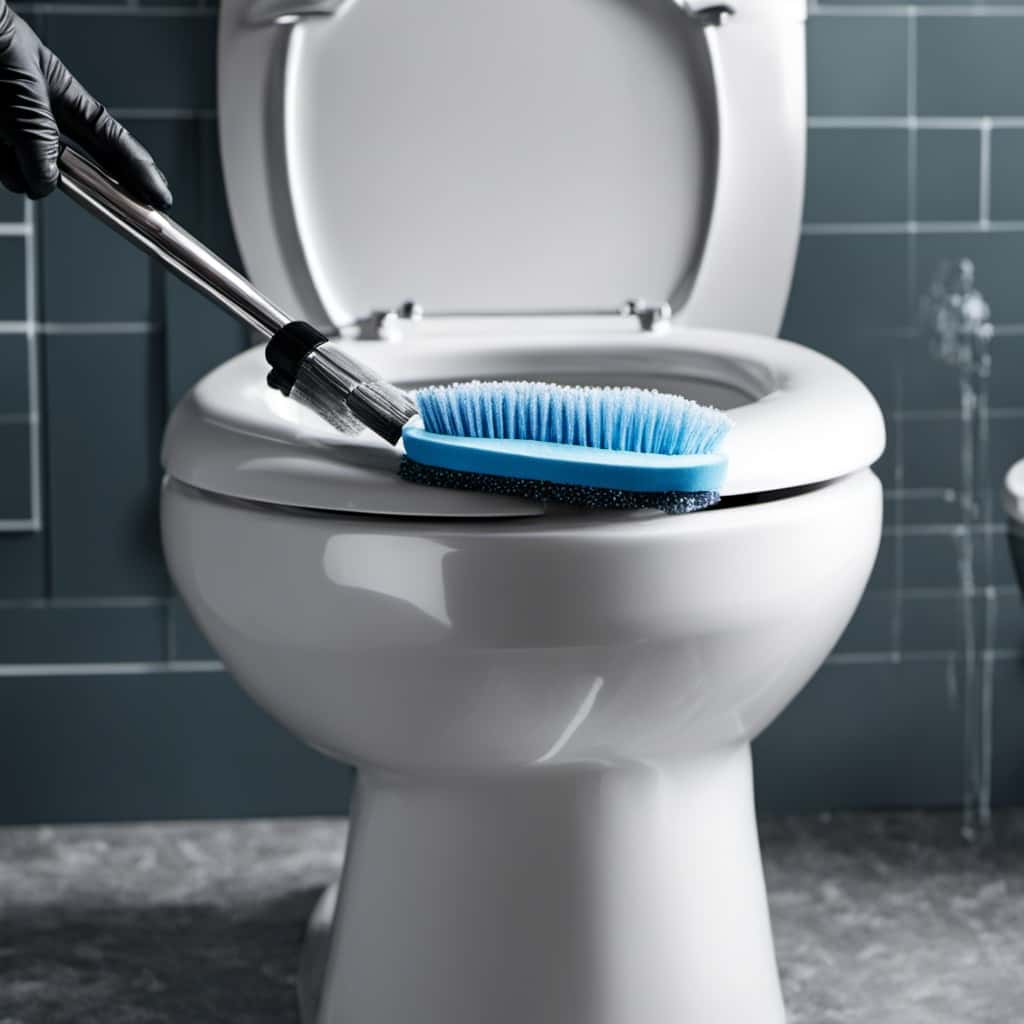
It’s crucial to be mindful of these restrictions to prevent clogging and damage to the plumbing systems. So next time you find yourself in one of these situations, remember to dispose of your toilet paper properly and help keep the pipes flowing smoothly.
With an impeccable eye for detail and a passion for bathroom-related, Ava leads our editorial team gracefully and precisely.
Under her guidance, Best Modern Toilet has flourished as the go-to resource for modern bathroom enthusiasts. In her free time, you might find Ava exploring antique shops and looking for vintage bathroom fixtures to add to her collection.
FAQ - Advanced Bathroom Queries
How Do You Flush the Toilet in Italy

If you have ever been in Italy and faced with a confusing toilet, not sure how to flush it, do not worry! We are here to help you navigate the complexities of Italian toilet flushing systems.
In this article, we will provide a step-by-step guide on how to properly flush a toilet in Italy, highlighting common mistakes to avoid and offering tips for using public restrooms.
Prepare to master the art of toilet flushing in Italy with our informative and precise instructions.
Key Takeaways
- In Italy, there are different types of toilets, including traditional flush toilets, dual-flush toilets for water conservation, bidets, squat toilets in public restrooms, and high-tech toilets with advanced features.
- The flushing mechanisms vary, with traditional flush toilets having a handle or button, dual-flush toilets having separate buttons for full and half flush, bidets having a separate faucet or lever for water control, squat toilets being flushed manually by pouring water, and high-tech toilets having electronic buttons or sensors.
- Water conservation is a priority, with dual-flush toilets offering different flushing options, some toilets having water-saving modes for liquid waste, bidets using less water compared to toilet paper, squat toilets requiring less water for flushing, and high-tech toilets having water-saving features like low-flow flushes.
- Toilet etiquette in Italy includes throwing toilet paper in the bin, using bidets for personal hygiene, maintaining proper squatting posture for effective use of squat toilets, high-tech toilets having additional features like heated seats or air dryers, and leaving the toilet clean and tidy being considered polite.
Types of Toilets in Italy
In Italy, we commonly encounter both manual and automatic toilets, with manual flushes being more prevalent. Historical toilets in Italy have played a significant role in shaping the country’s bathroom culture.

One unique feature found in many Italian bathrooms is the bidet, which is often located next to the toilet. The bidet is used for personal hygiene purposes and is a traditional fixture in Italian households. It provides a convenient way to clean oneself after using the toilet. The bidet’s popularity in Italy can be traced back to its introduction in the 18th century and its association with hygiene and cleanliness.
Today, bidet use is still common in Italy, although modern toilets with bidet functions integrated into the seat are becoming increasingly popular.
Understanding the Flushing Mechanisms
To understand the flushing mechanisms in Italian toilets, let’s explore the different types of flushes commonly found:
- Dual Flush: Many modern Italian toilets are equipped with a dual flush system, allowing users to choose between a partial flush for liquid waste and a full flush for solid waste. This not only promotes water conservation but also helps prevent toilet clogging.
- Push Button: Another common flushing mechanism in Italian toilets is the push button. This type of flush is often found in public restrooms and offers different buttons for different water volumes, ensuring efficient flushing.
- Lever Flush: Traditional Italian toilets may still use the lever flush mechanism, where a lever on the side of the toilet tank is pressed to initiate the flush. This mechanism is straightforward and reliable, but it’s important to be mindful of the amount of force applied to avoid excessive water consumption.
Understanding the different flushing mechanisms in Italian toilets can help prevent toilet flushing problems and promote proper toilet flushing etiquette.
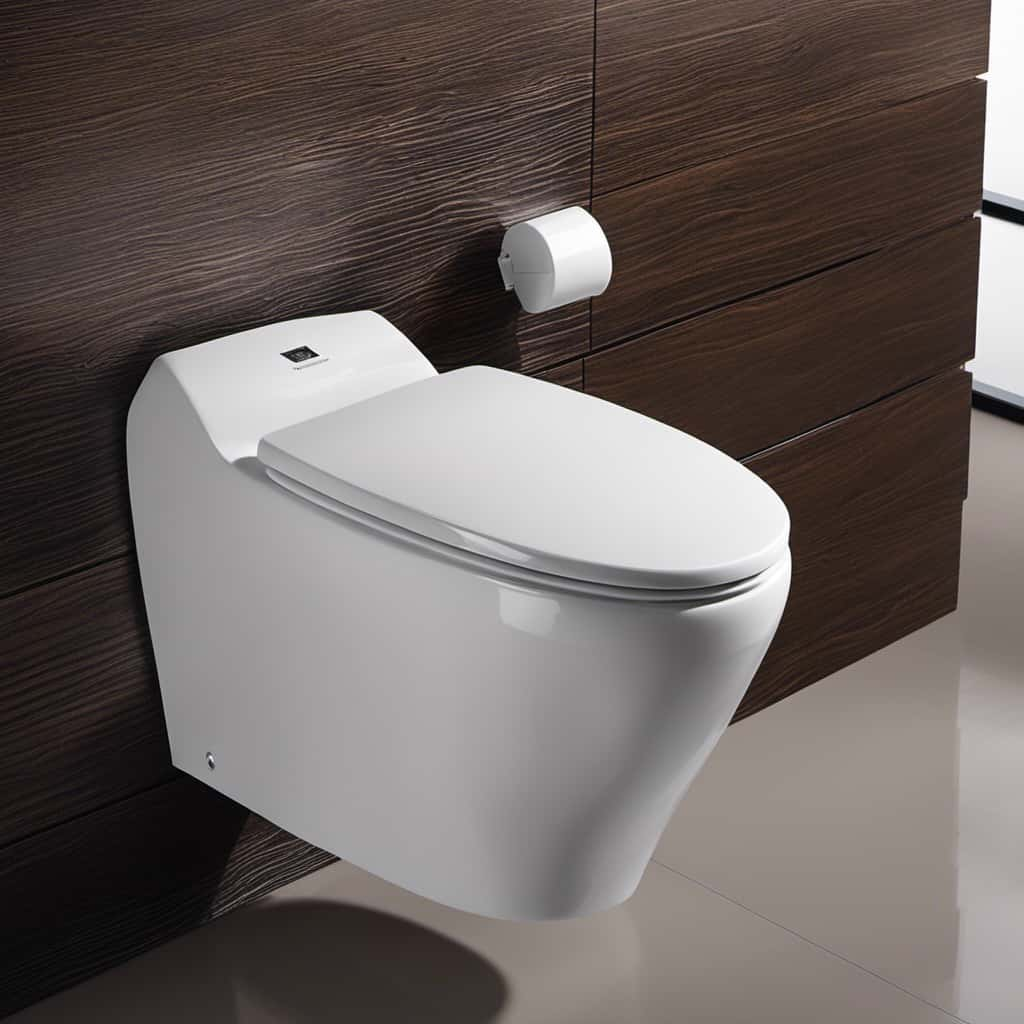
Step-By-Step Guide to Flushing a Toilet
We start by pressing the appropriate button or lever to initiate the flushing process in an Italian toilet. The location of the flush button or lever may vary depending on the design of the toilet. Once pressed, the flushing mechanism activates, releasing a powerful stream of water into the bowl. This water flow helps to remove waste and cleanse the toilet bowl. To ensure effective toilet cleaning and water conservation, it is important to use the appropriate amount of water for each flush. Some toilets may have dual-flush systems, offering a choice between a partial flush for liquid waste and a full flush for solid waste. This option allows for greater water conservation by using less water for liquid waste disposal. Here is a step-by-step guide to flushing a toilet in Italy:
| Step | Action |
|---|---|
| 1 | Locate the flush button or lever |
| 2 | Press the button or push the lever |
| 3 | Allow the flushing mechanism to activate |
| 4 | Ensure effective toilet cleaning and water conservation by using the appropriate amount of water for each flush |
| 5 | Consider using the dual-flush option, if available, for greater water conservation |
Common Mistakes to Avoid When Flushing
One mistake to avoid when flushing a toilet in Italy is failing to ensure proper water conservation by using excessive amounts of water. It’s important to follow toilet flushing etiquette to prevent unnecessary wastage.
Here are three common flushing mistakes to avoid:
- Flushing unnecessary items: Don’t flush items such as sanitary napkins, wipes, or cigarette butts, as they can clog the toilet and cause plumbing issues.
- Overloading the toilet: Avoid flushing large amounts of toilet paper or excessive waste at once, as it may lead to clogging and require professional assistance to fix.
- Ignoring flushing problems: If you notice a weak flush, slow drainage, or frequent clogs, don’t ignore these signs. Troubleshoot common flushing problems promptly to prevent further issues and costly repairs.
Tips for Using Public Restrooms in Italy
When using public restrooms in Italy, it’s important to consider the cleanliness and availability of necessary amenities. Italy has its own cultural differences in bathroom etiquette that visitors should be aware of.
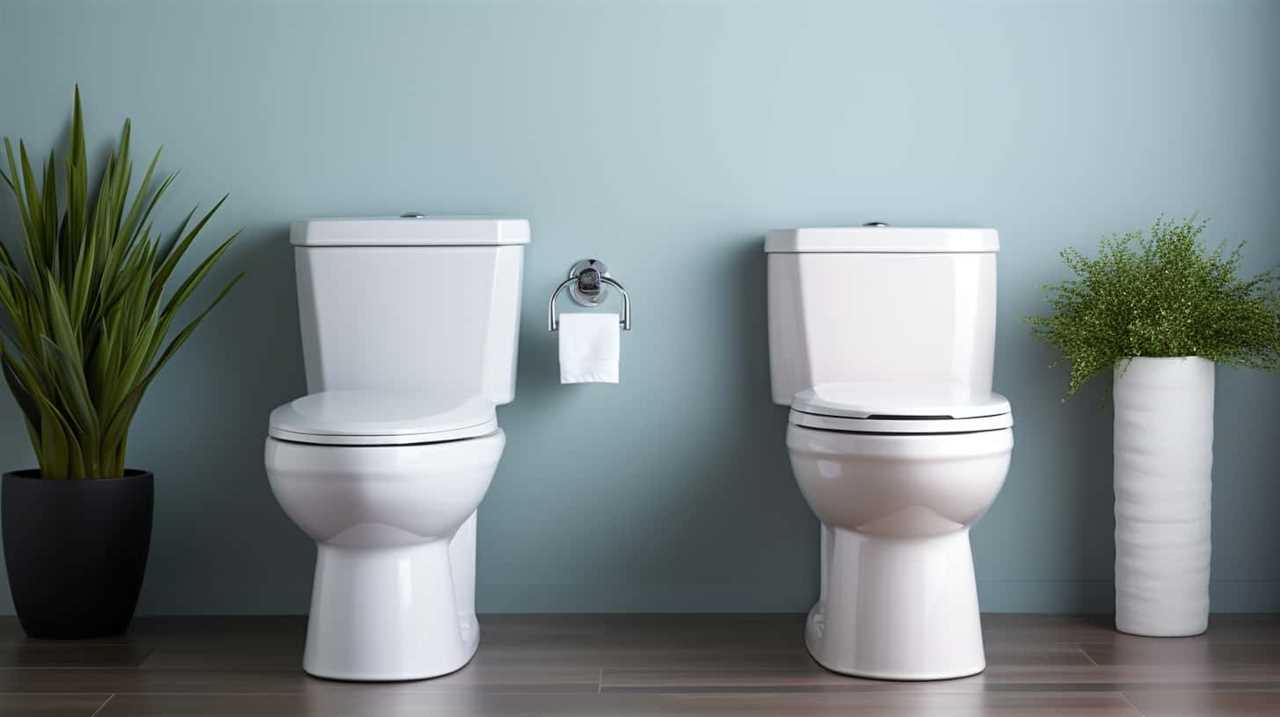
To ensure a pleasant and hygienic experience, here are some tips for finding clean public restrooms in Italy:
- Look for establishments like cafes, restaurants, or hotels, as they usually have better-maintained facilities.
- Carry tissues or toilet paper with you, as some public restrooms may not provide them.
- Be prepared to pay a small fee to use certain public restrooms, especially in busy tourist areas.
- Avoid using public restrooms in train stations or other high-traffic areas, as they tend to be less clean.
Frequently Asked Questions
Are Bidets Commonly Found in Italian Toilets?
Bidets are commonly found in Italian households. They are used for personal hygiene after using the toilet. Bidet usage varies in different regions of Italy, but it is a common fixture in most homes.
What Do the Different Symbols on the Flushing Buttons or Levers Mean?
Different symbols on flushing buttons or levers in Italian toilets indicate various types of flushing mechanisms. Common misconceptions about these symbols can lead to confusion. It is important to understand their meanings for proper operation.
Is It Necessary to Hold Down the Flushing Mechanism for a Longer Time in Italy?
We found that in Italy, it is not necessary to hold down the flushing mechanism for a longer time. However, it’s important to note that certain toilets may have different flushing durations to conserve water.

Are There Any Specific Times When Flushing the Toilet Should Be Avoided in Italy?
There are specific times in Italy when flushing the toilet should be avoided to conserve water. It is important to be mindful of water usage and only flush when necessary, especially during periods of drought or water scarcity.
What Are Some Cultural Etiquettes to Keep in Mind When Using Public Restrooms in Italy?
What cultural etiquettes should we keep in mind when using public restrooms in Italy? In Italian culture, bathroom cleanliness is highly valued. It’s important to properly dispose of toilet paper in the designated bins provided.
Conclusion
In conclusion, mastering the art of flushing a toilet in Italy is like unlocking a hidden treasure. With various types of toilets and unique flushing mechanisms, it’s essential to understand the intricacies involved.
By following our step-by-step guide and avoiding common mistakes, you’ll navigate the waters smoothly. Whether you’re in a public restroom or your own private oasis, these tips will ensure a seamless experience.
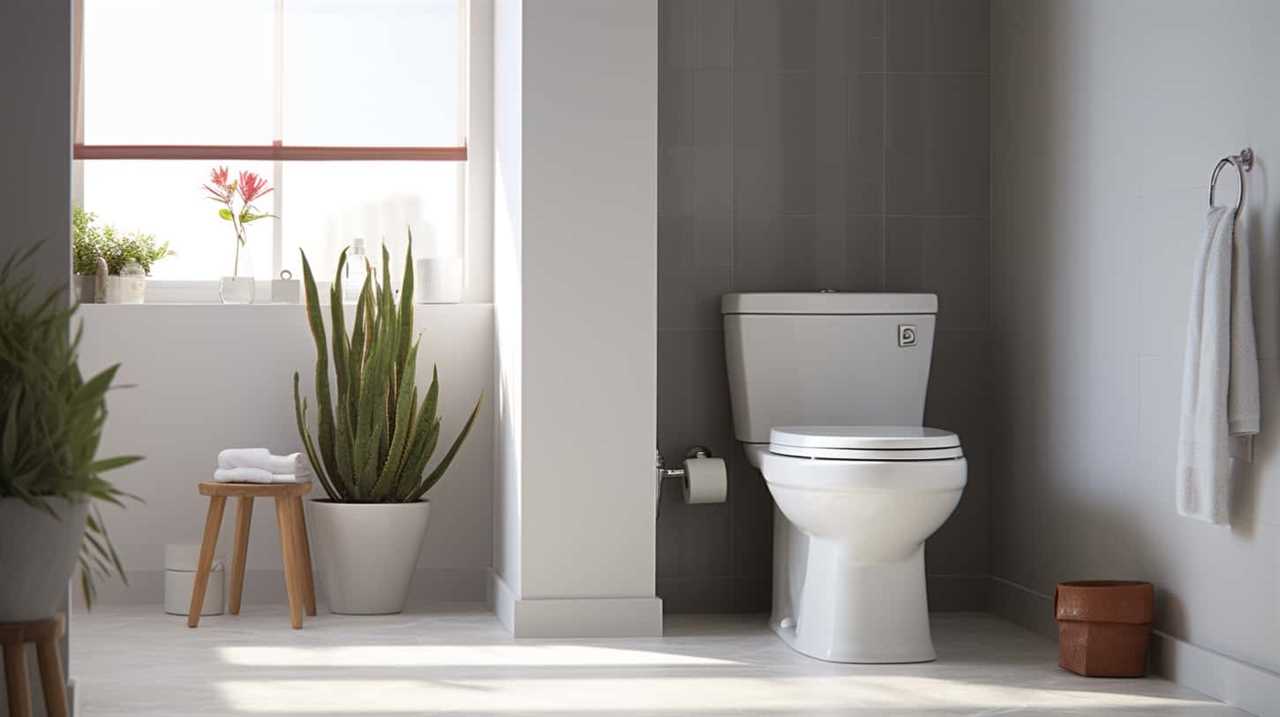
Embrace the challenge and conquer the flushing game with finesse.
With an impeccable eye for detail and a passion for bathroom-related, Ava leads our editorial team gracefully and precisely.
Under her guidance, Best Modern Toilet has flourished as the go-to resource for modern bathroom enthusiasts. In her free time, you might find Ava exploring antique shops and looking for vintage bathroom fixtures to add to her collection.
FAQ - Advanced Bathroom Queries
Best Toilet Brand

We have thoroughly searched the market to discover the top toilet brands for you. Whether it’s American Standard, Kohler, Toto, Delta, or Gerber, we have all the insider details you require.
Picture this: a bathroom oasis, where every flush is powerful, every seat is comfortable, and every fixture is reliable. Our expertise and unbiased research have led us to these top contenders.
Get ready to elevate your bathroom experience with the best toilet brand on the market.
Key Takeaways
- American Standard offers a wide range of options for residential and commercial use, while Gerber offers a wide range of models to cater to different needs and preferences.
- Gerber toilets are known for their reliability and durability, with minimal maintenance and repairs needed, while American Standard focuses on advanced flushing technology for efficient water usage.
- Gerber toilets are praised for their water efficiency and are certified by WaterSense for their water-saving capabilities, while American Standard is known for its innovative technologies like EverClean and WaterSense certification.
- Gerber toilets are generally more affordable compared to American Standard, and customers have praised Gerber toilets for their excellent performance and value for money.
American Standard
In our opinion, American Standard is the top choice for a reliable and high-quality toilet brand. When comparing American Standard’s toilet models for residential and commercial use, it’s clear that they offer a wide range of options to suit different needs.

For residential use, American Standard provides toilets with advanced flushing technology that ensures efficient water usage without compromising on performance. These models also come in various designs and sizes to fit any bathroom aesthetic.
On the other hand, American Standard’s commercial toilet models are specifically engineered to withstand heavy usage and have features like powerful flushes and easy maintenance. This demonstrates the brand’s commitment to providing durable and efficient solutions for both residential and commercial settings.
With a history spanning over 140 years, American Standard has continuously innovated in the toilet industry. They’ve introduced groundbreaking technologies such as EverClean, a surface that inhibits the growth of bacteria, mold, and mildew. This not only ensures a cleaner and more hygienic toilet but also reduces the need for frequent cleaning.
American Standard has also been at the forefront of water conservation efforts by developing toilets with WaterSense certification, which means they meet strict efficiency standards. This dedication to sustainability and innovation has solidified American Standard’s position as a leader in the toilet industry.

Kohler
When it comes to a reliable and high-quality toilet brand, Kohler stands out with its impressive range of models for residential and commercial use. Kohler toilets are known for their innovative features and superior performance.
Here are some key features that make Kohler toilets a popular choice among consumers:
- Efficient flushing system: Kohler toilets are equipped with powerful flushing mechanisms that ensure effective waste removal, preventing clogs and reducing water usage.
- Comfort height: Many Kohler models feature a comfort height design, which offers a chair-like seating position for added comfort and ease of use.
- Dual-flush technology: Some Kohler toilets come with dual-flush options, allowing users to choose between a full flush for solid waste and a partial flush for liquid waste, resulting in water savings.
- Easy installation: Kohler toilets are designed for easy installation, with clear instructions and user-friendly features that simplify the process.
- Wide range of pricing options: Kohler offers a variety of toilet models at different price points, making it possible to find a suitable option for every budget.
Whether you’re looking for efficiency, comfort, or affordability, Kohler toilets have a model to meet your needs.
Toto
Let’s now shift our focus to Toto, another leading toilet brand that offers exceptional features and performance. When comparing Toto to American Standard, Toto often comes out on top in terms of innovative technology and water efficiency.
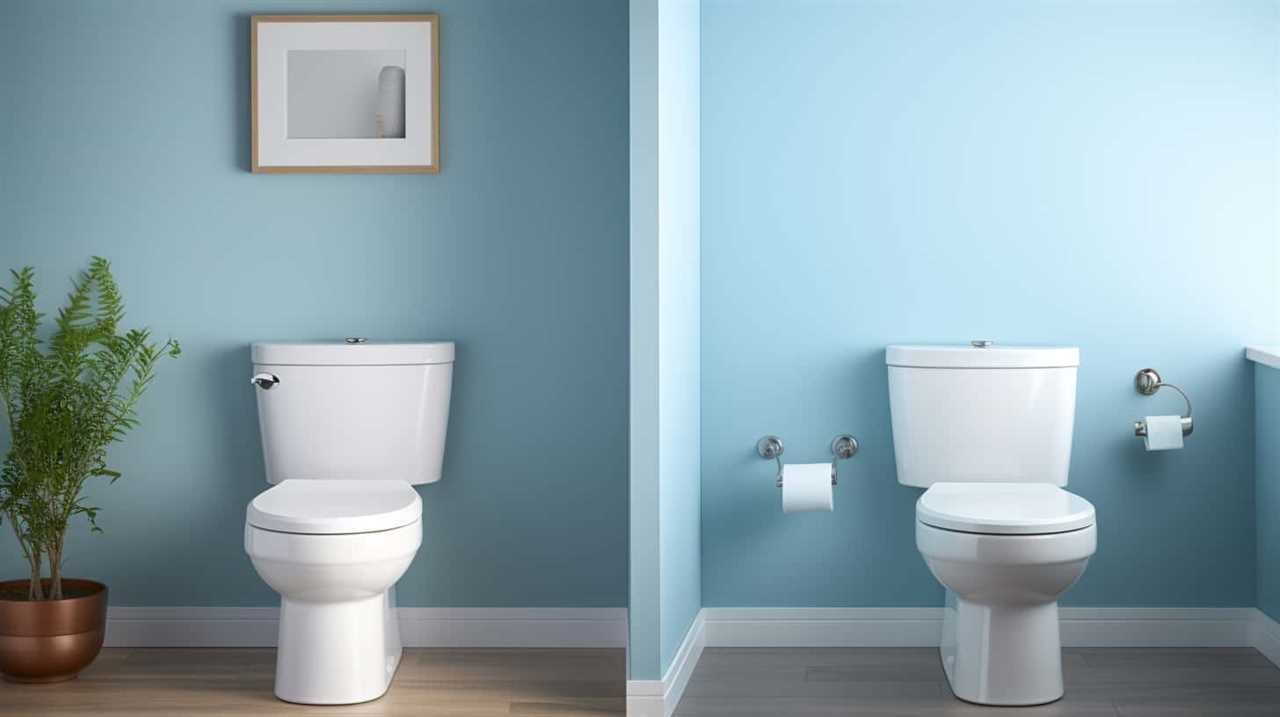
Toto toilets incorporate advanced flushing systems like the Tornado Flush, which uses centrifugal force to create a powerful and efficient flush. In terms of design, Toto offers a wide range of styles and finishes to suit any bathroom decor.
When comparing Toto to Kohler, both brands are known for their quality and reliability. However, Toto is often praised for its superior flushing performance and water-saving features. With Toto, you can expect a toilet that not only looks great but also delivers exceptional performance.
Now, let’s move on to the next section and discuss the brand Delta.
Delta
We’ve found three major factors that make Delta a top toilet brand.
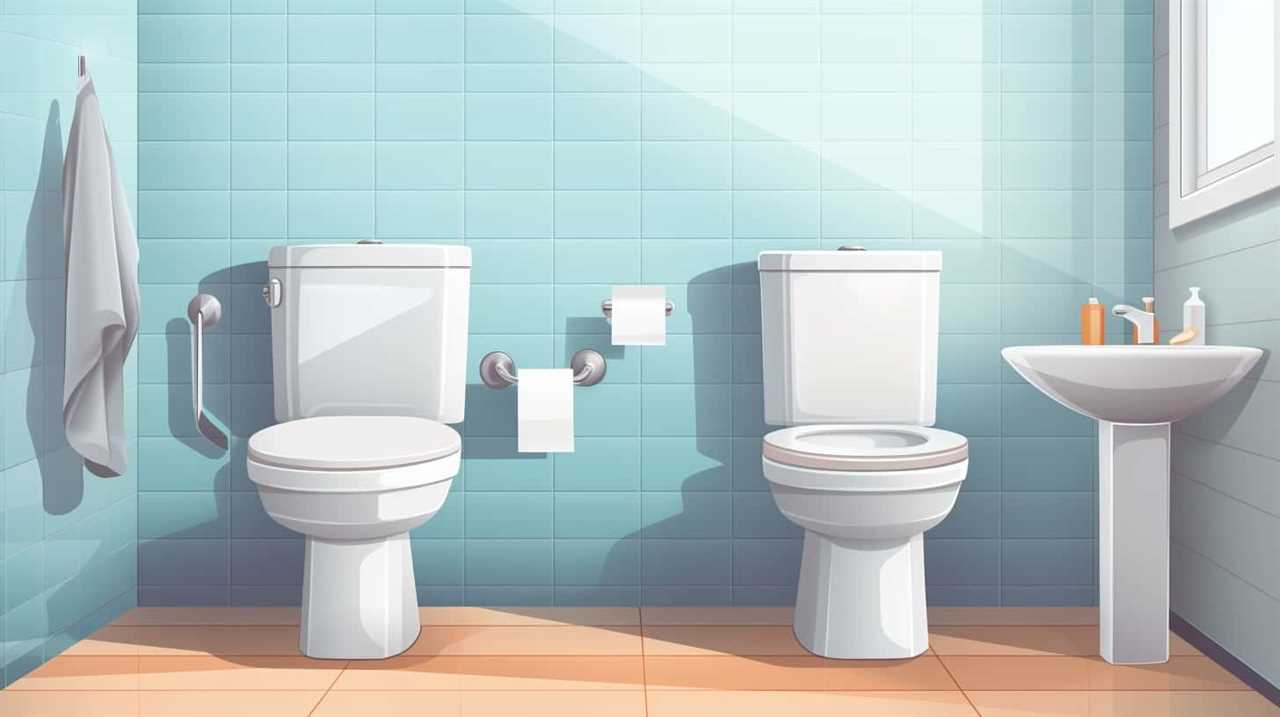
- Delta toilets are known for their exceptional durability and reliability. The materials used in their construction are of high quality, ensuring a long-lasting product.
- Delta toilets offer innovative features that enhance the user experience. From efficient flushing systems to easy-to-clean designs, Delta toilets are designed with the user in mind.
- Delta toilets are backed by a strong warranty and excellent customer support. This ensures that any issues or concerns are addressed promptly and efficiently.
When comparing Delta to other brands, it’s clear that Delta stands out in terms of quality, innovation, and customer satisfaction. Their toilets consistently outperform competitors in terms of durability and functionality.
With its superior features and outstanding performance, Delta proves to be a top choice for those seeking a reliable and high-quality toilet.
Now, let’s move on to discuss another top toilet brand: Gerber.
Gerber
Moving on to Gerber, another top toilet brand, we find that they offer their own unique set of features and qualities. Gerber toilets are known for their reliability, durability, and water efficiency. They have a wide range of models that cater to different needs and preferences. To provide a comprehensive understanding of Gerber toilets, let’s compare them to American Standard, one of their main competitors.
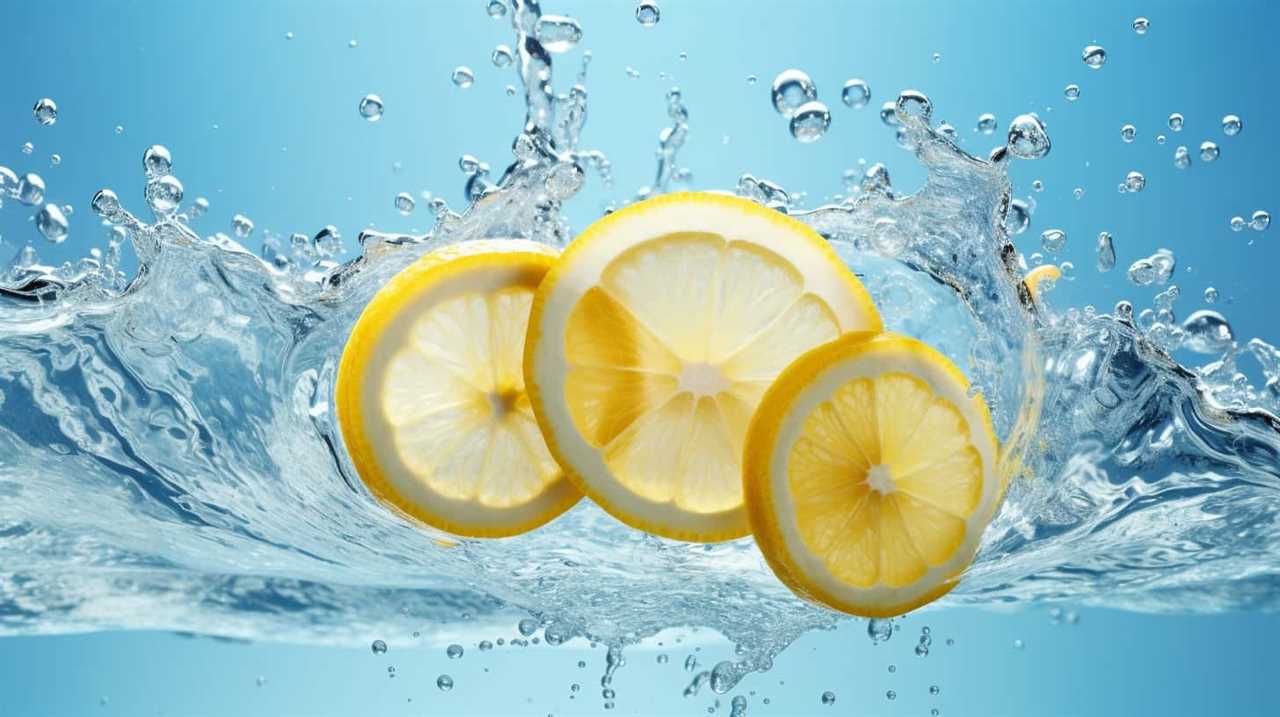
Below is a table that highlights the key differences between Gerber and American Standard toilets:
| Gerber | American Standard |
|---|---|
| Strong flush power | Powerful flush system |
| Water-saving technology | Efficient water usage |
| Affordable pricing | Higher price range |
Based on gerber toilet reviews, customers have praised Gerber toilets for their excellent performance and value for money. However, when comparing Gerber vs American Standard, it ultimately comes down to personal preference and specific requirements. Both brands have their own strengths and can be trusted for their quality craftsmanship.
Frequently Asked Questions
What Is the Average Lifespan of a Toilet Manufactured by American Standard?
On average, the lifespan of an American Standard toilet is around 15 to 20 years. To maximize its longevity, regular maintenance is crucial. Here are some tips: keep it clean, avoid using harsh chemicals, and promptly fix any leaks.
Does Kohler Offer Any Eco-Friendly or Water-Saving Toilet Models?
Yes, Kohler offers a range of eco-friendly and water-saving toilet models. They have innovative options that help conserve water while still providing efficient flushing capabilities. These toilets are a great choice for those looking to reduce their environmental impact.
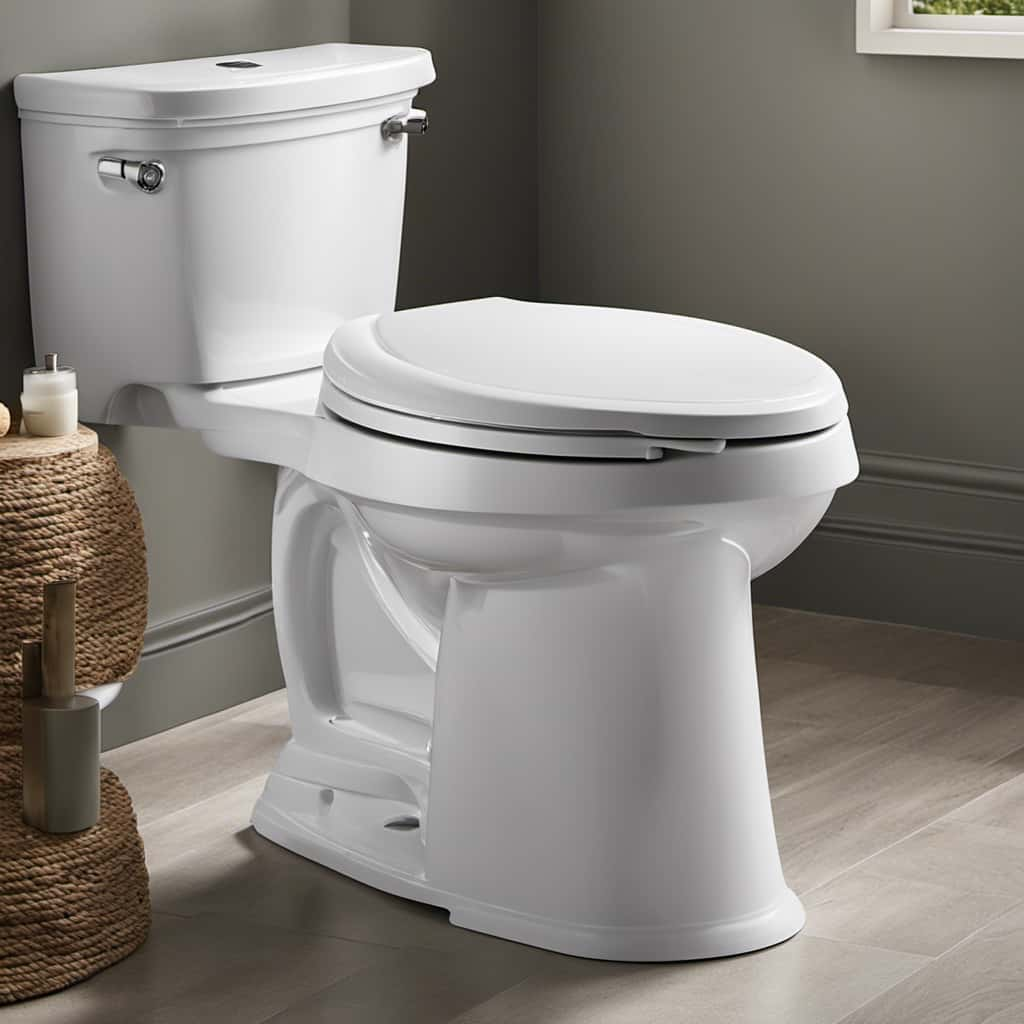
Are Toto Toilets Suitable for Small Bathrooms With Limited Space?
Toto toilets are suitable for small bathrooms with limited space due to their compact dimensions and space-saving options. They offer a range of toilet models designed specifically for maximizing space while maintaining functionality and comfort.
Can Delta Toilets Be Easily Installed by Homeowners Without Professional Assistance?
Delta toilets can be easily installed by homeowners without professional assistance. However, it is important to follow the Delta toilet installation guide and consider the pros and cons of DIY toilet installation.
What Is the Warranty Period Offered by Gerber for Their Toilet Products?
The warranty period offered by Gerber for their toilet products and customer reviews are important factors to consider when determining the quality and reliability of their toilets.
Conclusion
In conclusion, when it comes to choosing the best toilet brand, American Standard, Kohler, Toto, Delta, and Gerber stand out as top contenders.

Like a symphony of efficiency, these brands harmonize quality, durability, and innovation, ensuring a seamless bathroom experience.
Whether you seek sleek aesthetics, water-saving features, or reliable flushing power, these brands have got you covered.
So, go ahead, take the plunge and elevate your bathroom to new heights with a toilet from one of these trusted manufacturers.
With an impeccable eye for detail and a passion for bathroom-related, Ava leads our editorial team gracefully and precisely.
Under her guidance, Best Modern Toilet has flourished as the go-to resource for modern bathroom enthusiasts. In her free time, you might find Ava exploring antique shops and looking for vintage bathroom fixtures to add to her collection.
-

 Bathroom Enhancements2 months ago
Bathroom Enhancements2 months agoWill Hot Bath Lower Blood Pressure
-

 FAQ - Advanced Bathroom Queries3 months ago
FAQ - Advanced Bathroom Queries3 months agoWhich Countries Use Bidets the Most
-
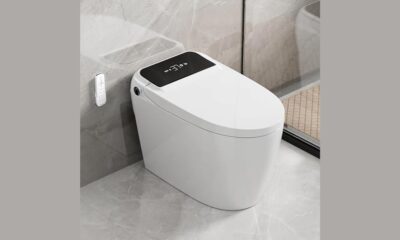
 Reviews1 month ago
Reviews1 month agoLDian Smart Toilet Review [2024]
-
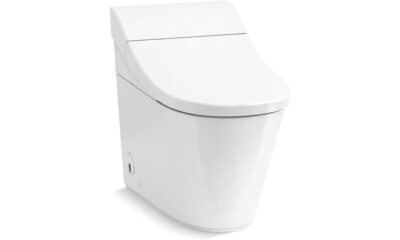
 Reviews2 months ago
Reviews2 months agoKohler Innate Smart Toilet Review [2024]
-
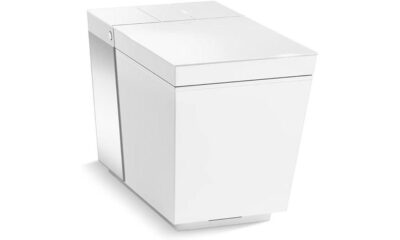
 Reviews2 months ago
Reviews2 months agoKohler NUMI 2.0 Smart Toilet Review [2024]
-
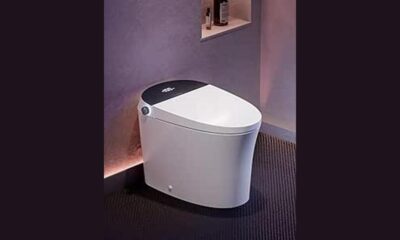
 Reviews2 months ago
Reviews2 months agoCANEST Smart Toilet Review: The Ultimate Bathroom Upgrade [2024]
-

 Toilet Types3 months ago
Toilet Types3 months agoAre Bleach Tablets Bad for Your Toilet
-
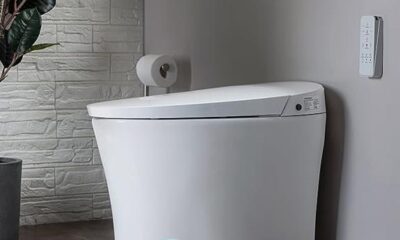
 Reviews2 months ago
Reviews2 months agoWoodbridge B0970S Smart Bidet Toilet Review [2024]
